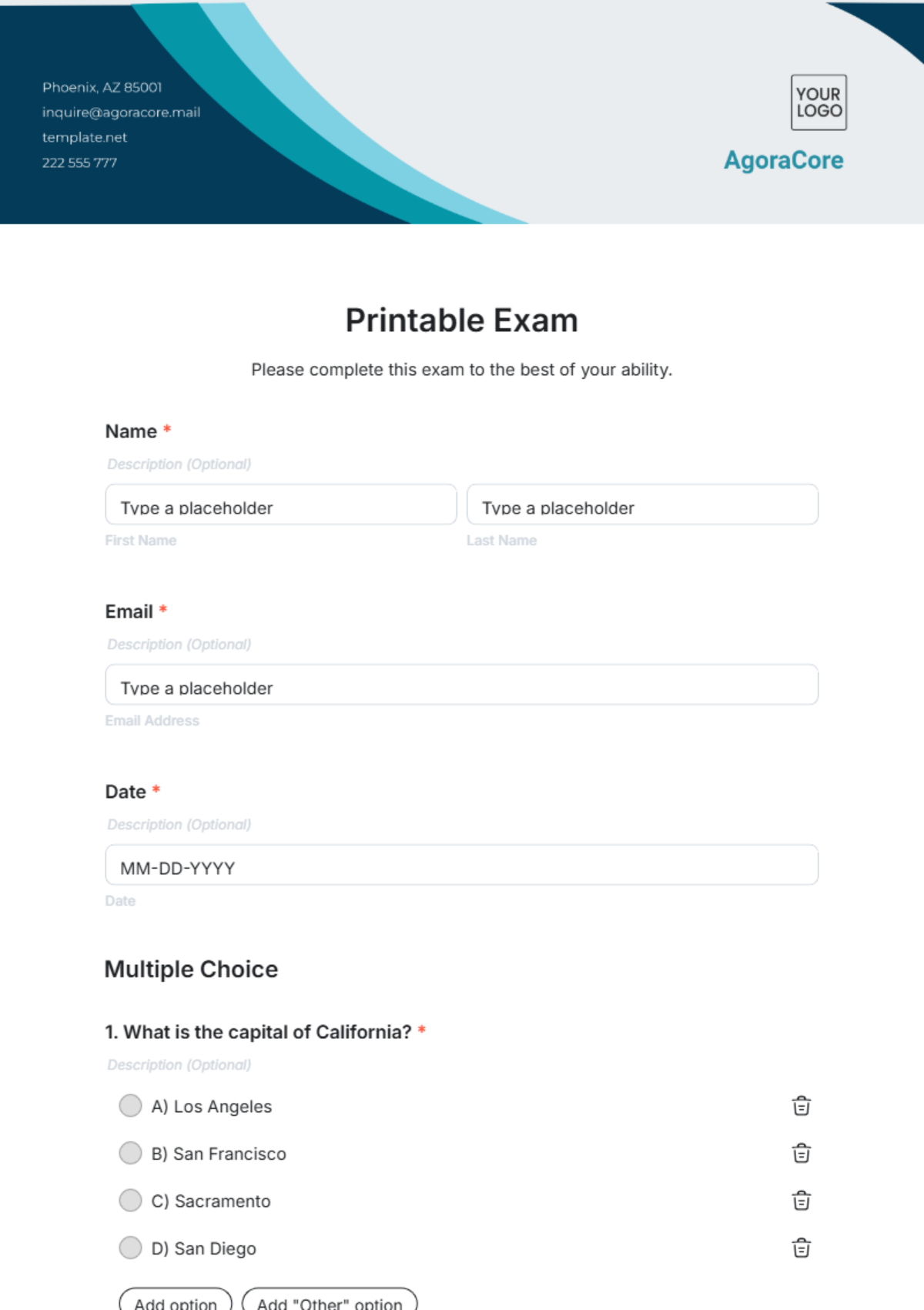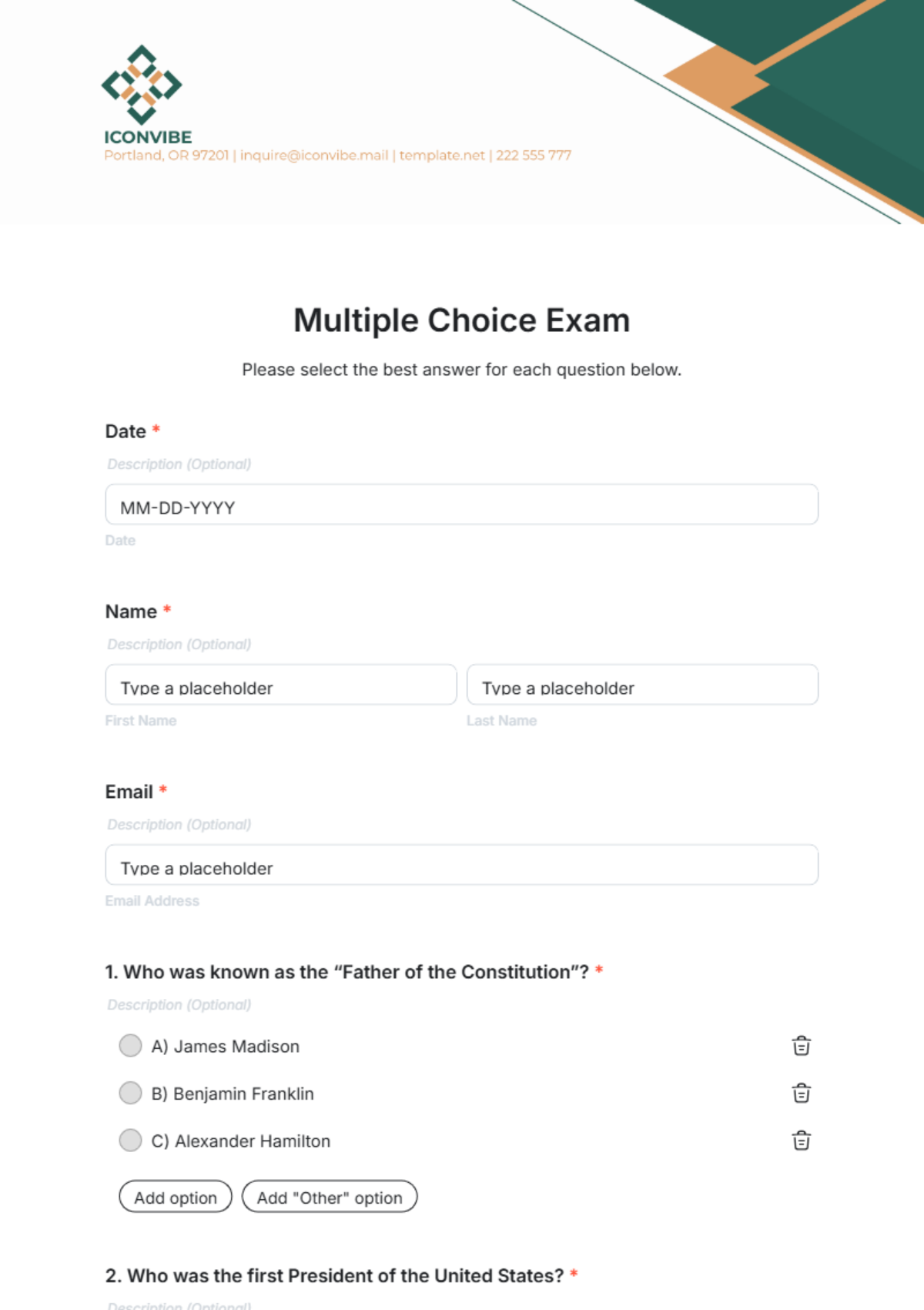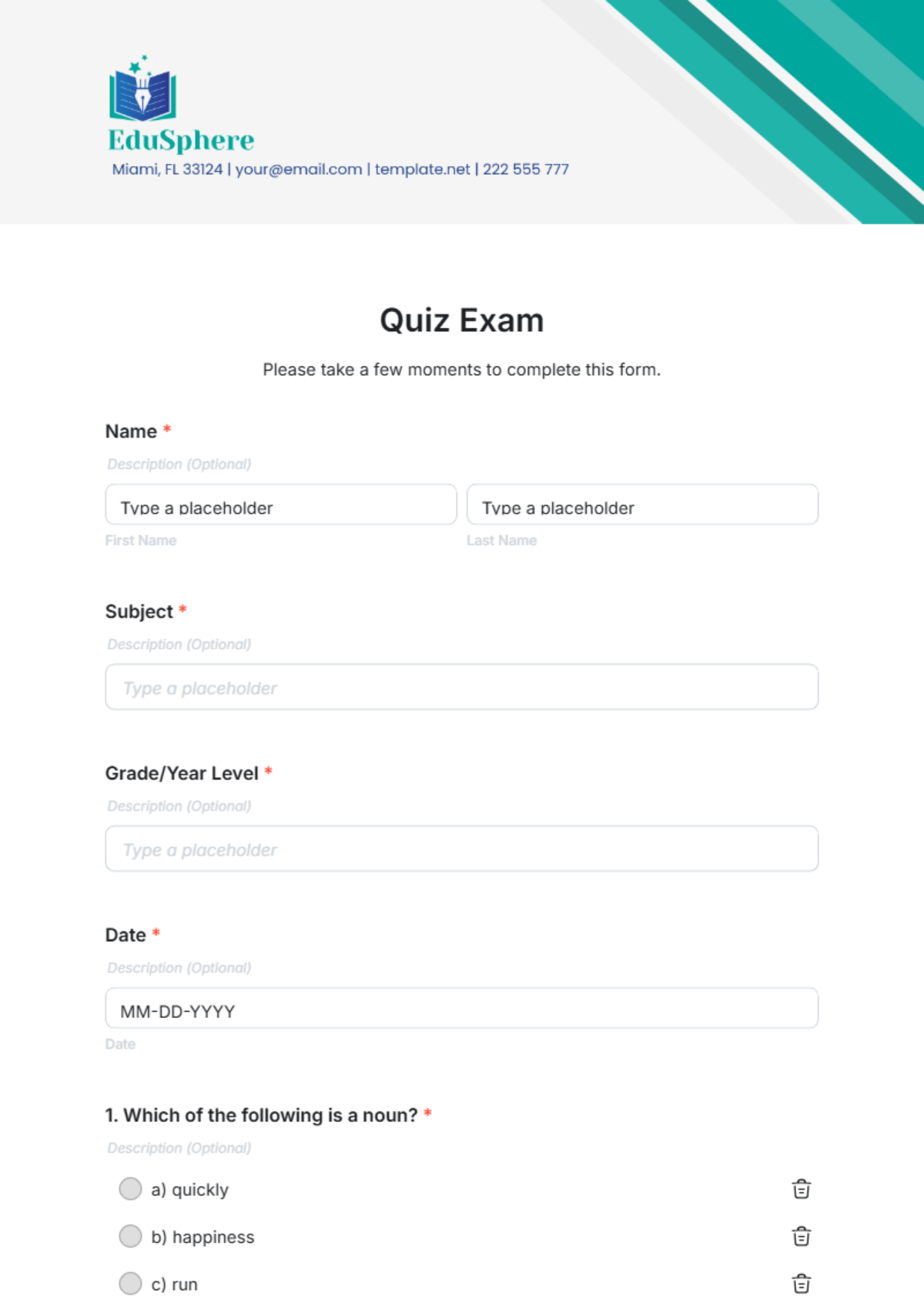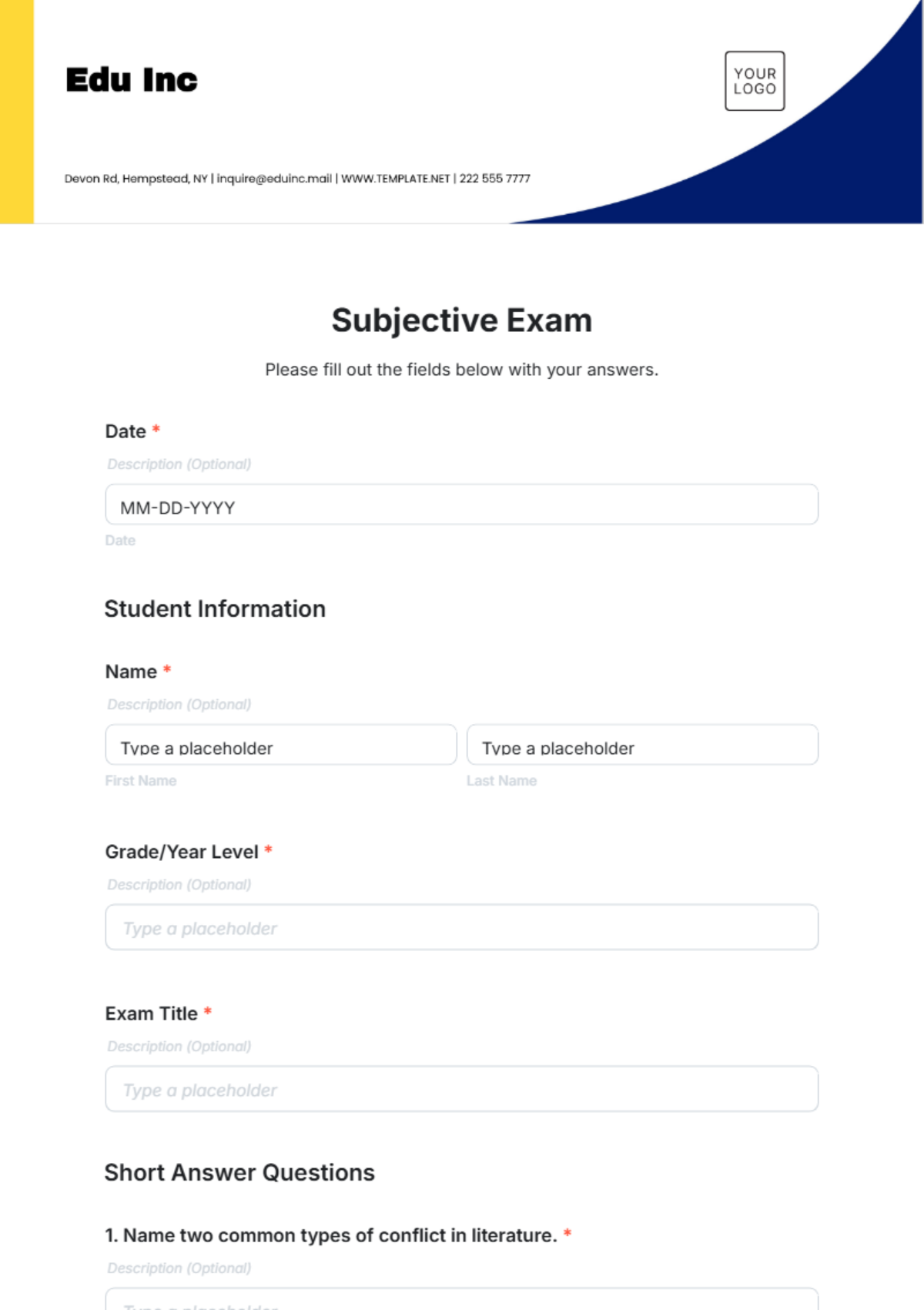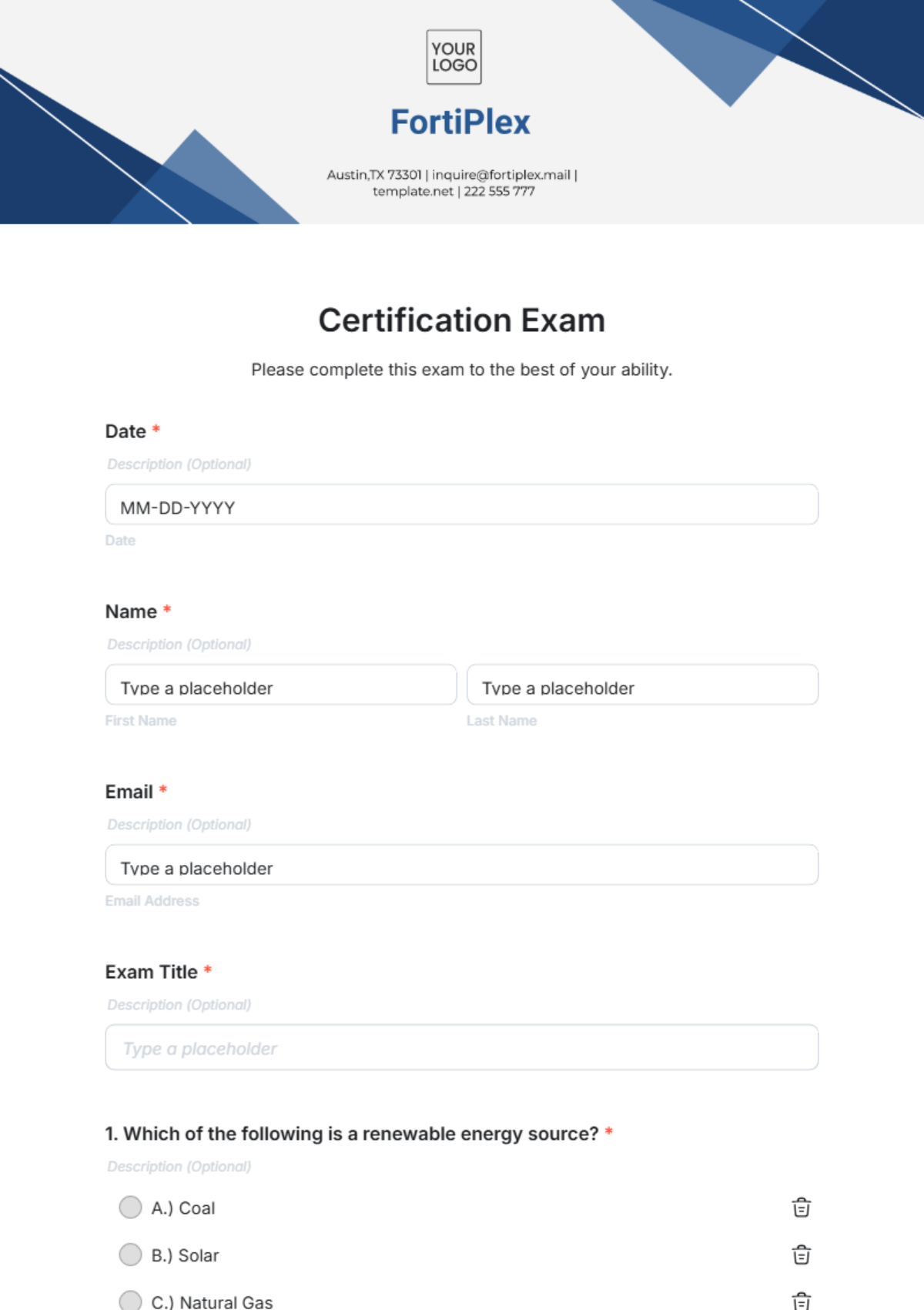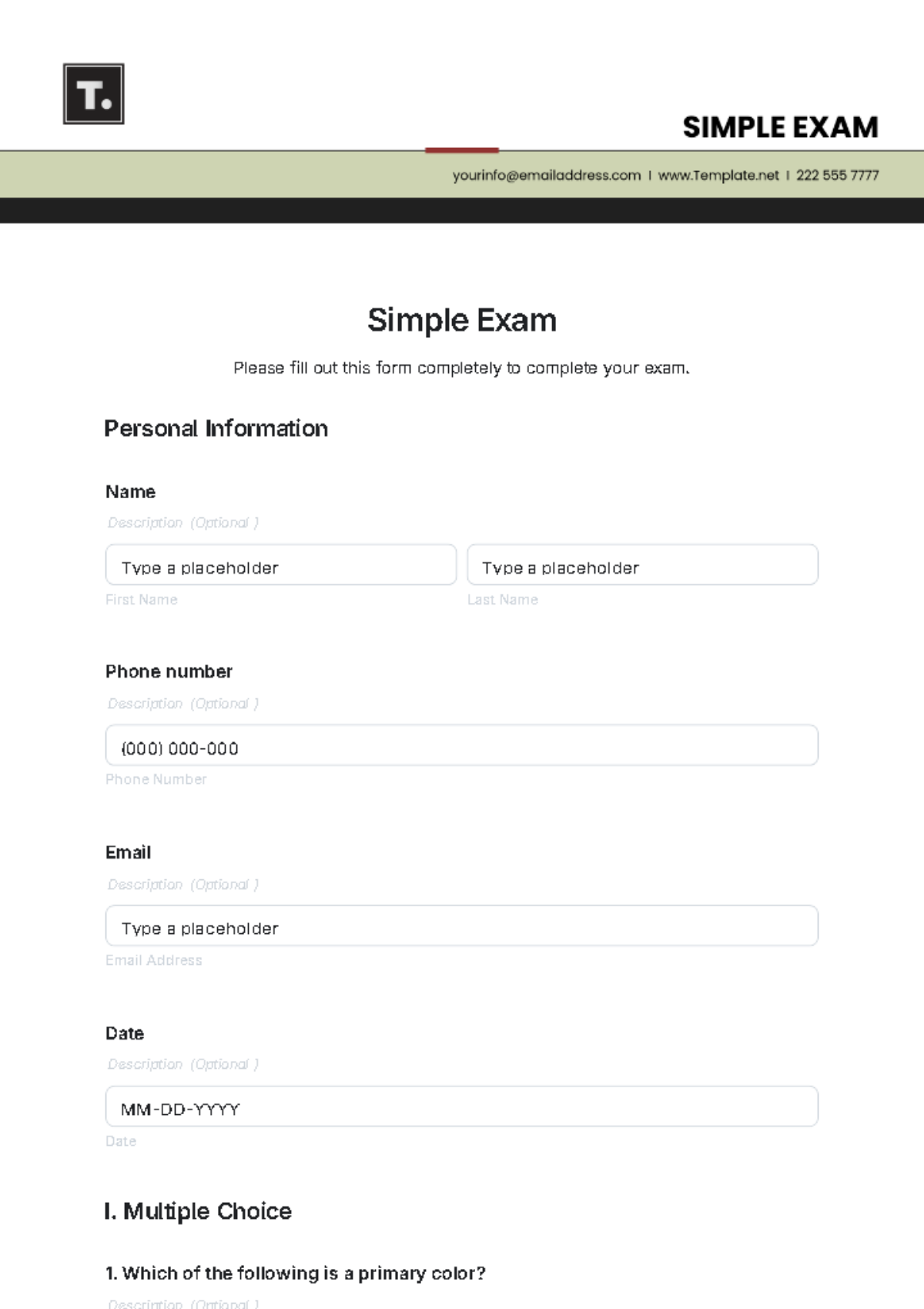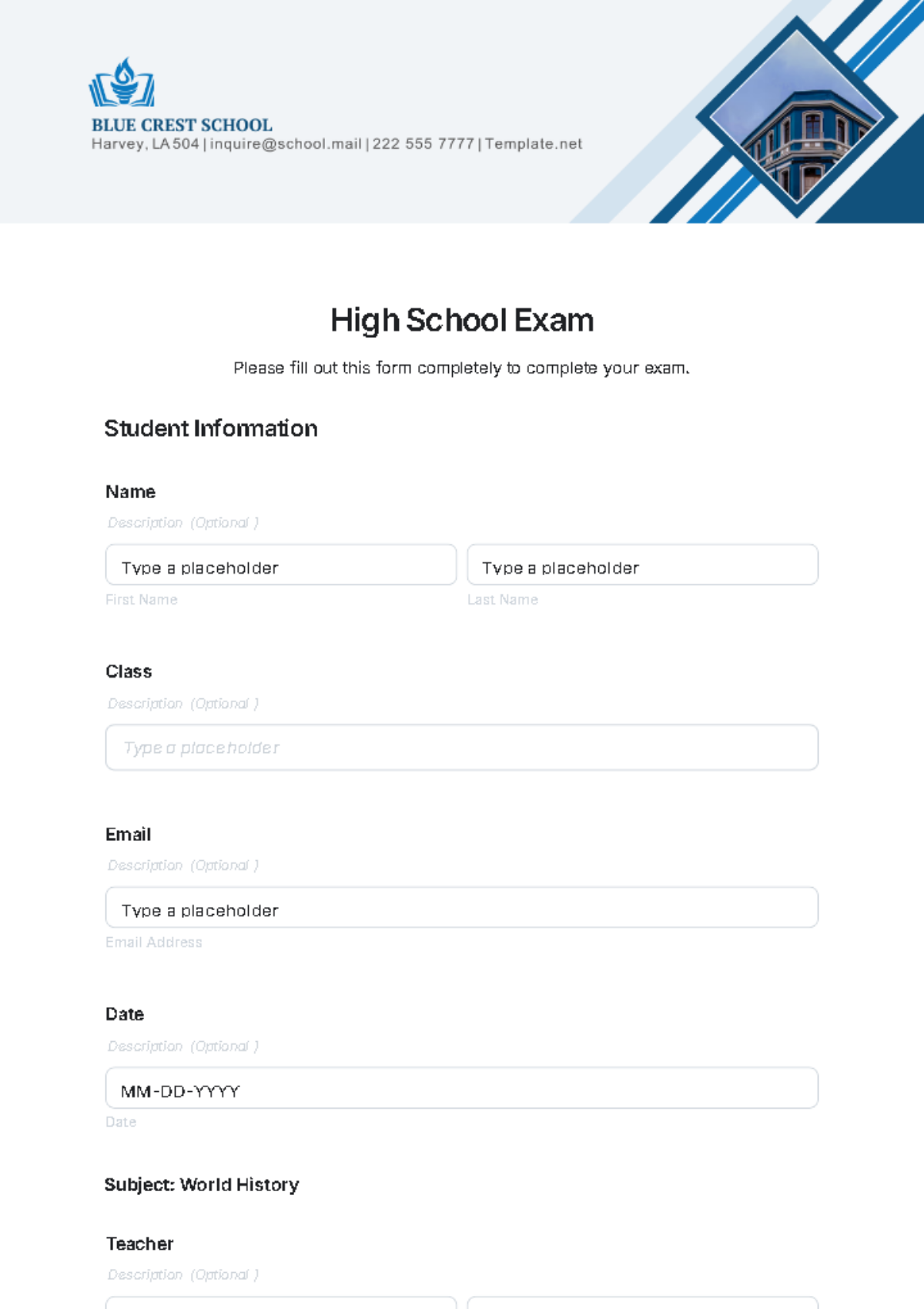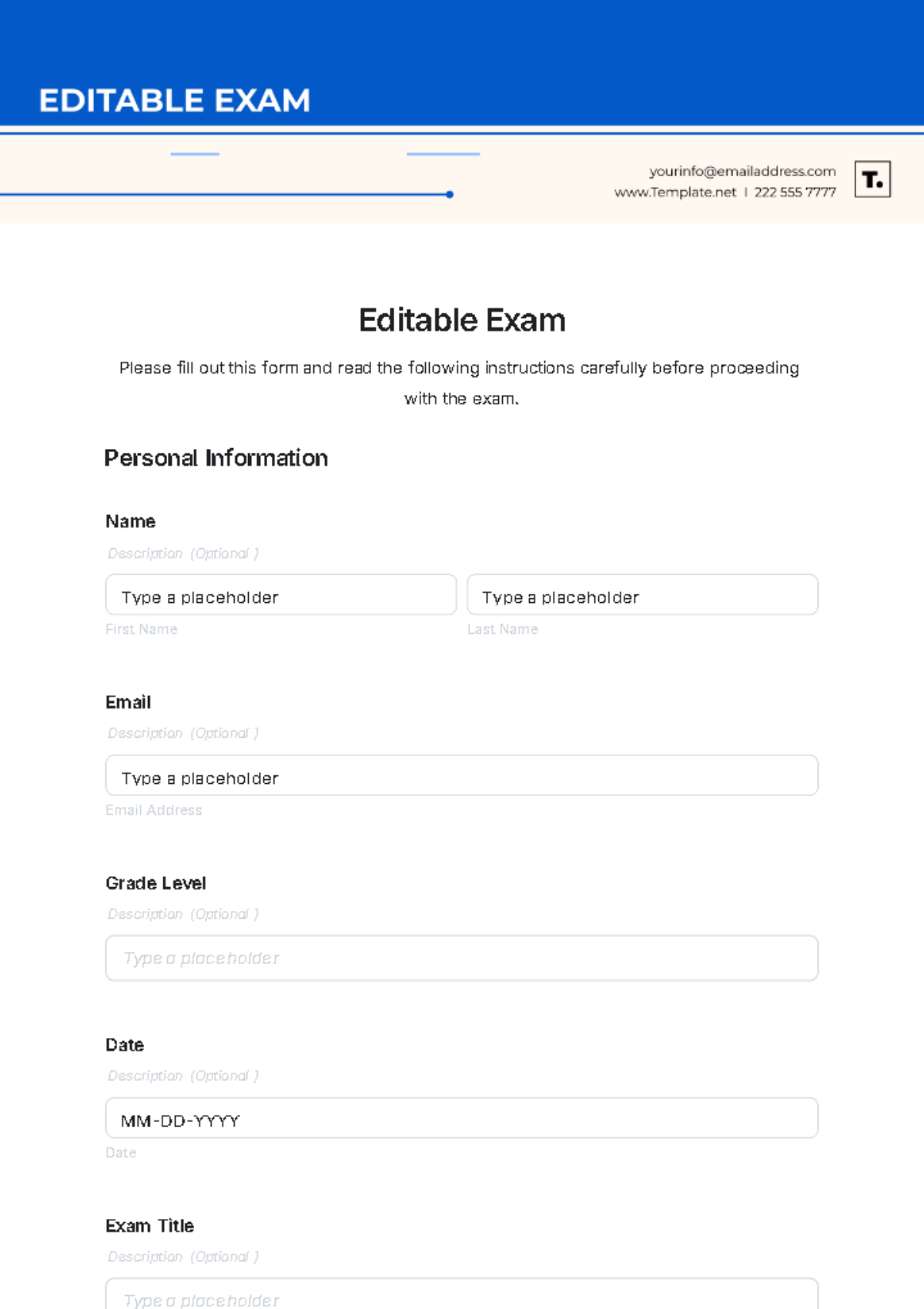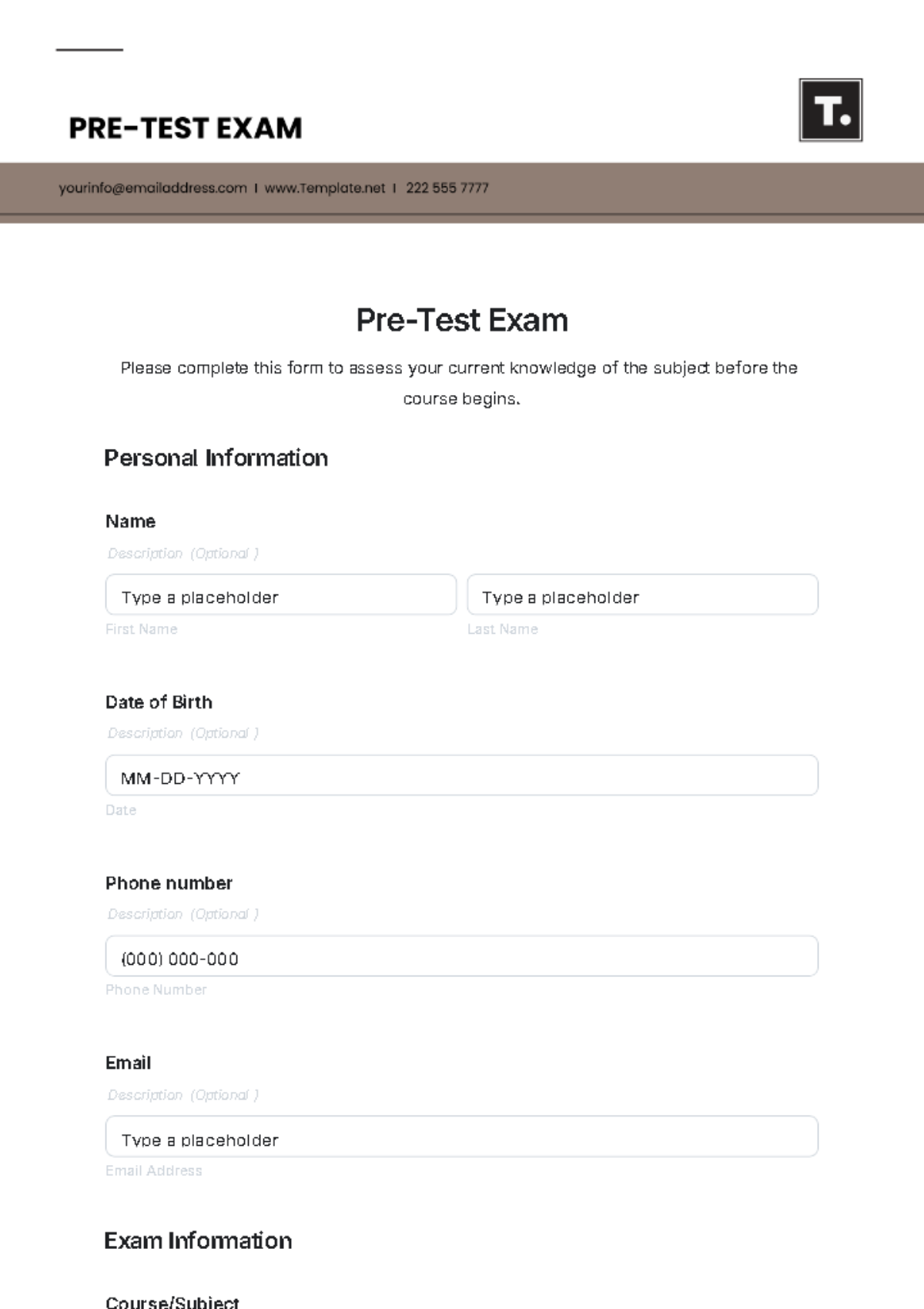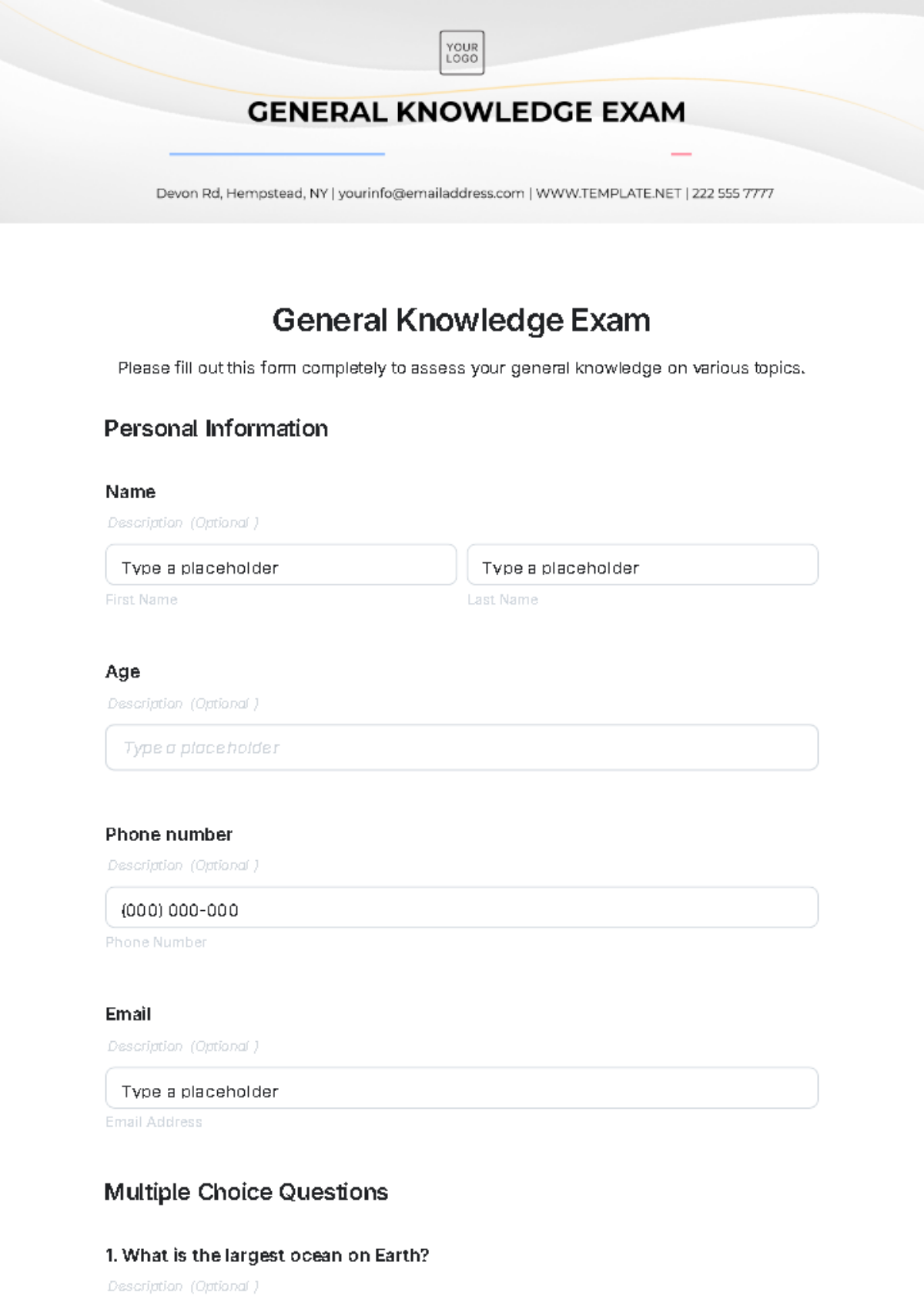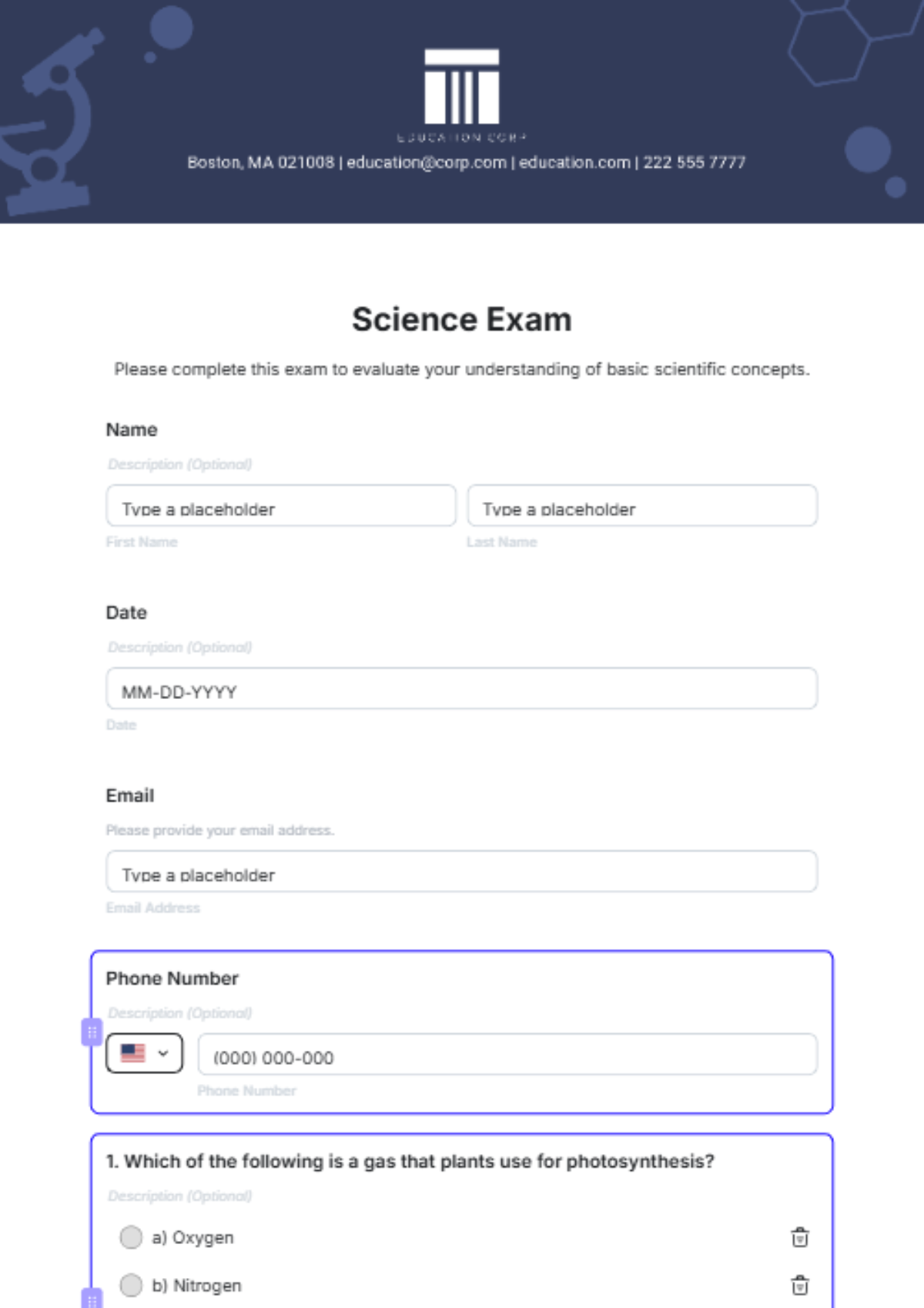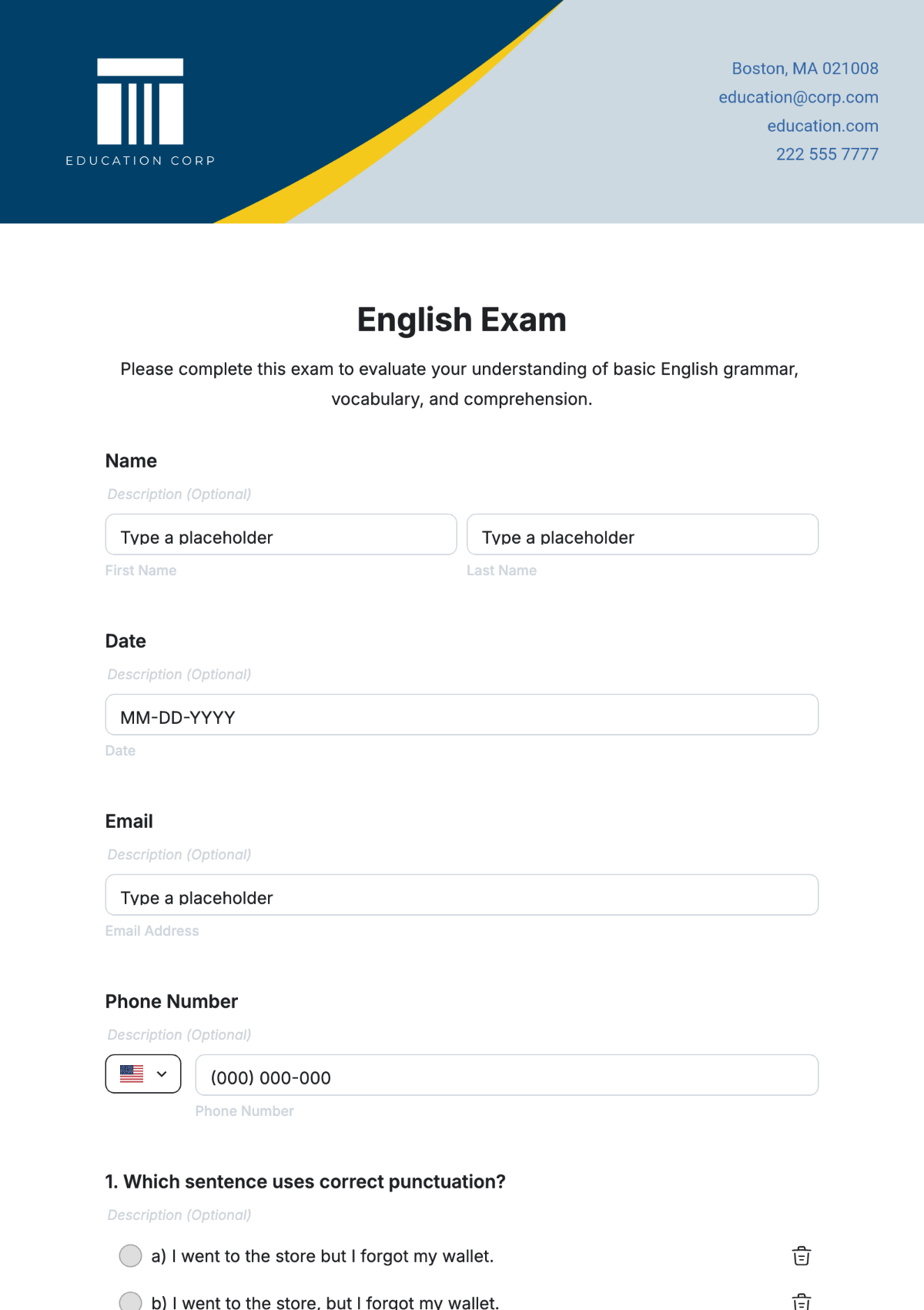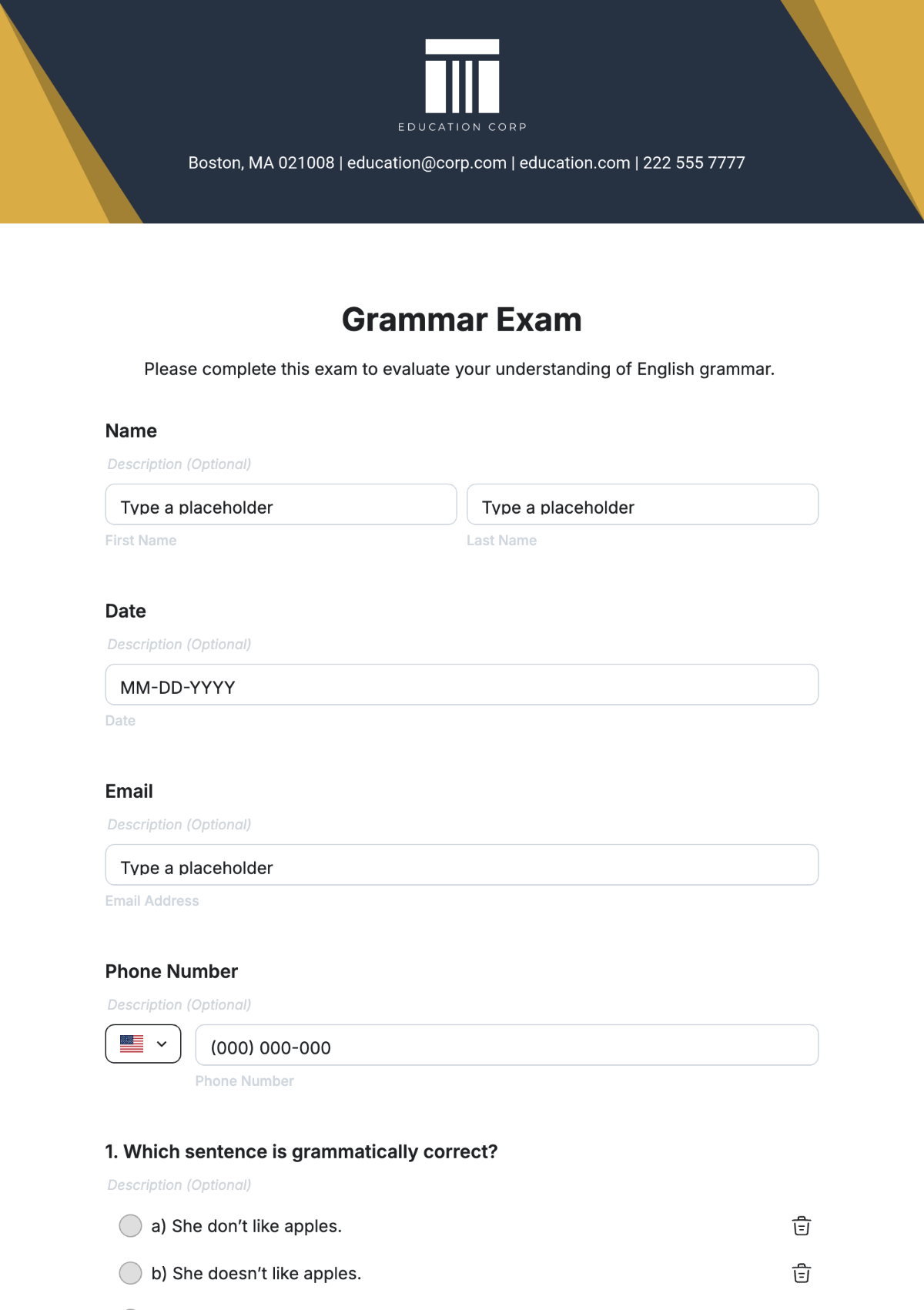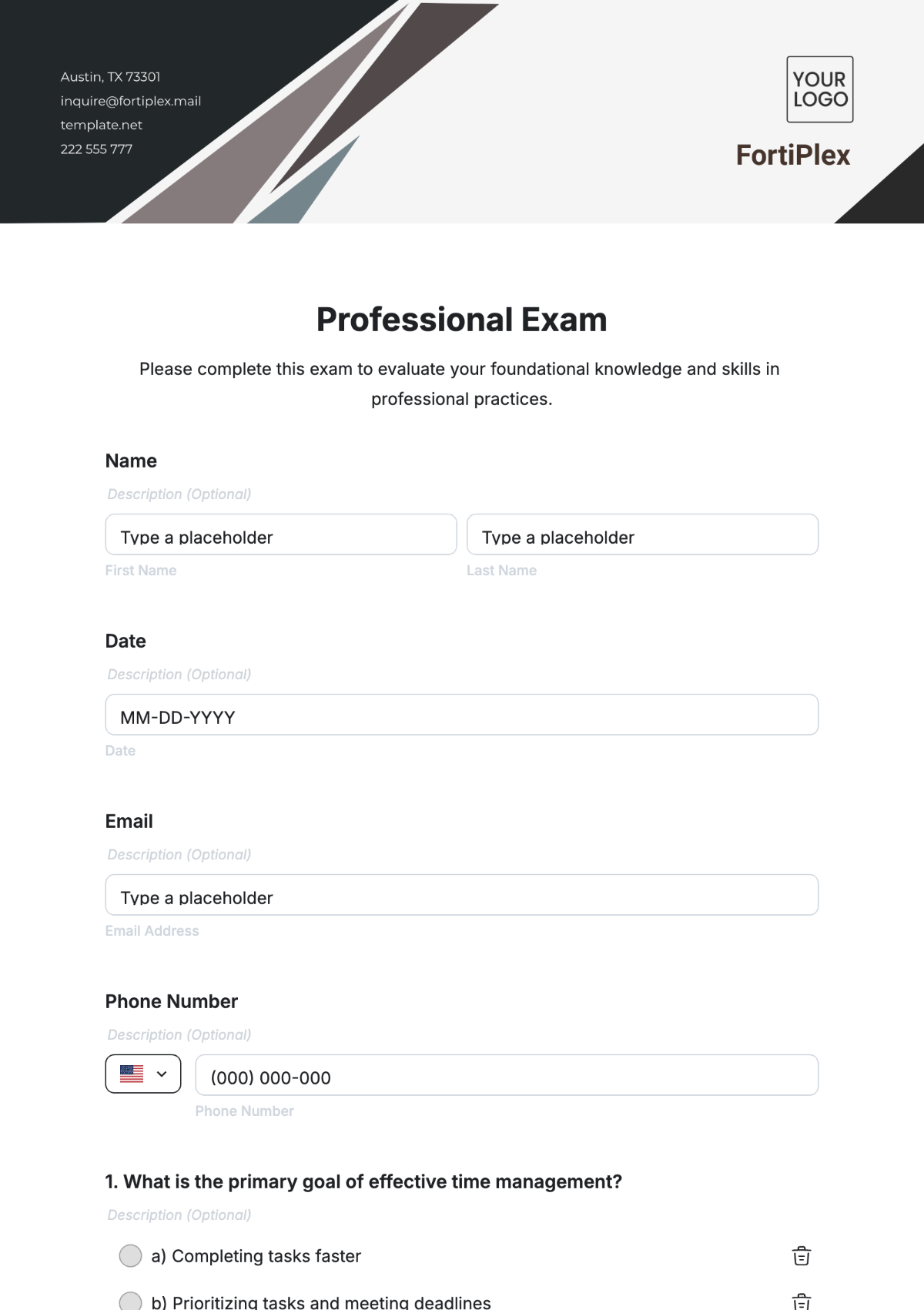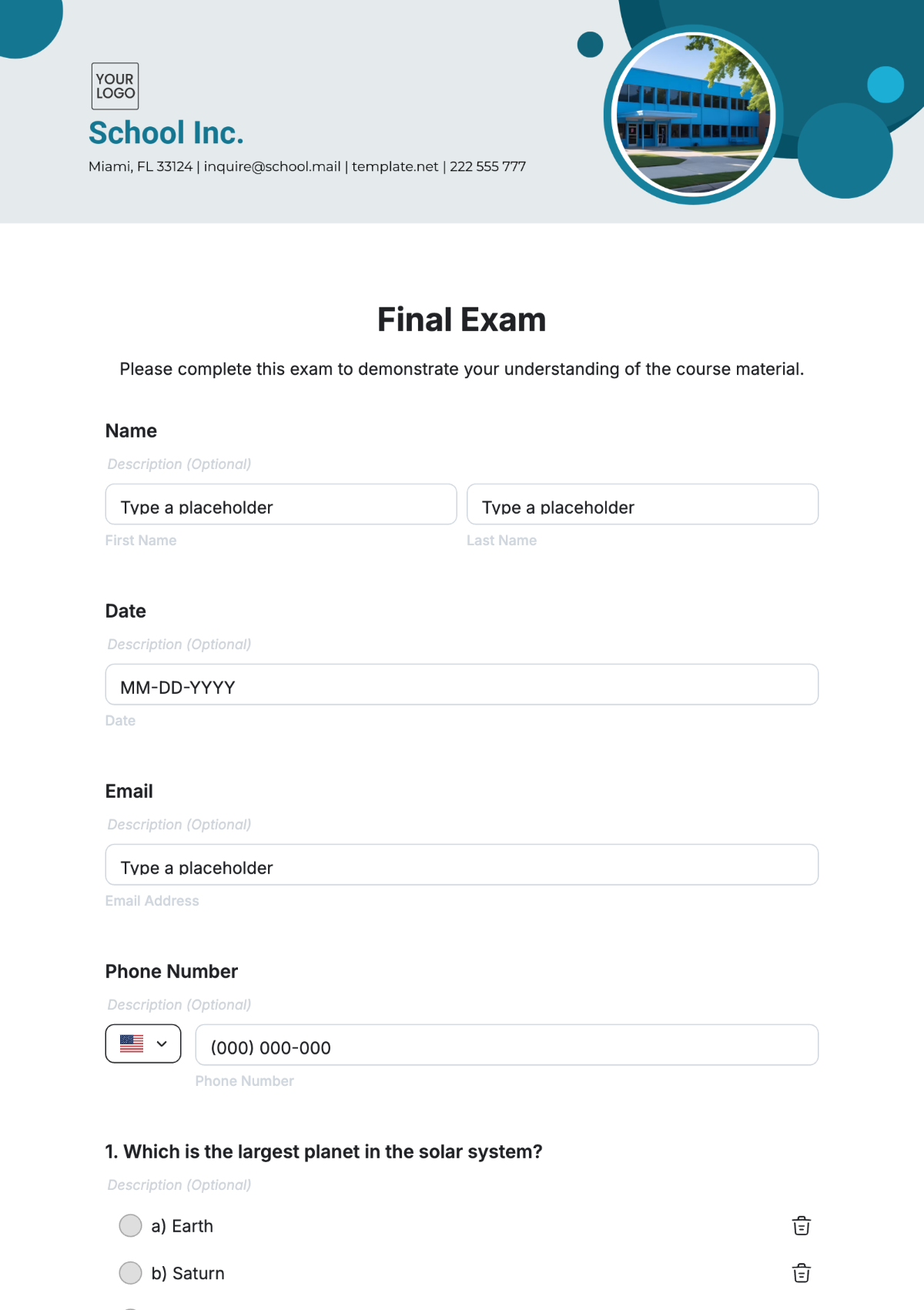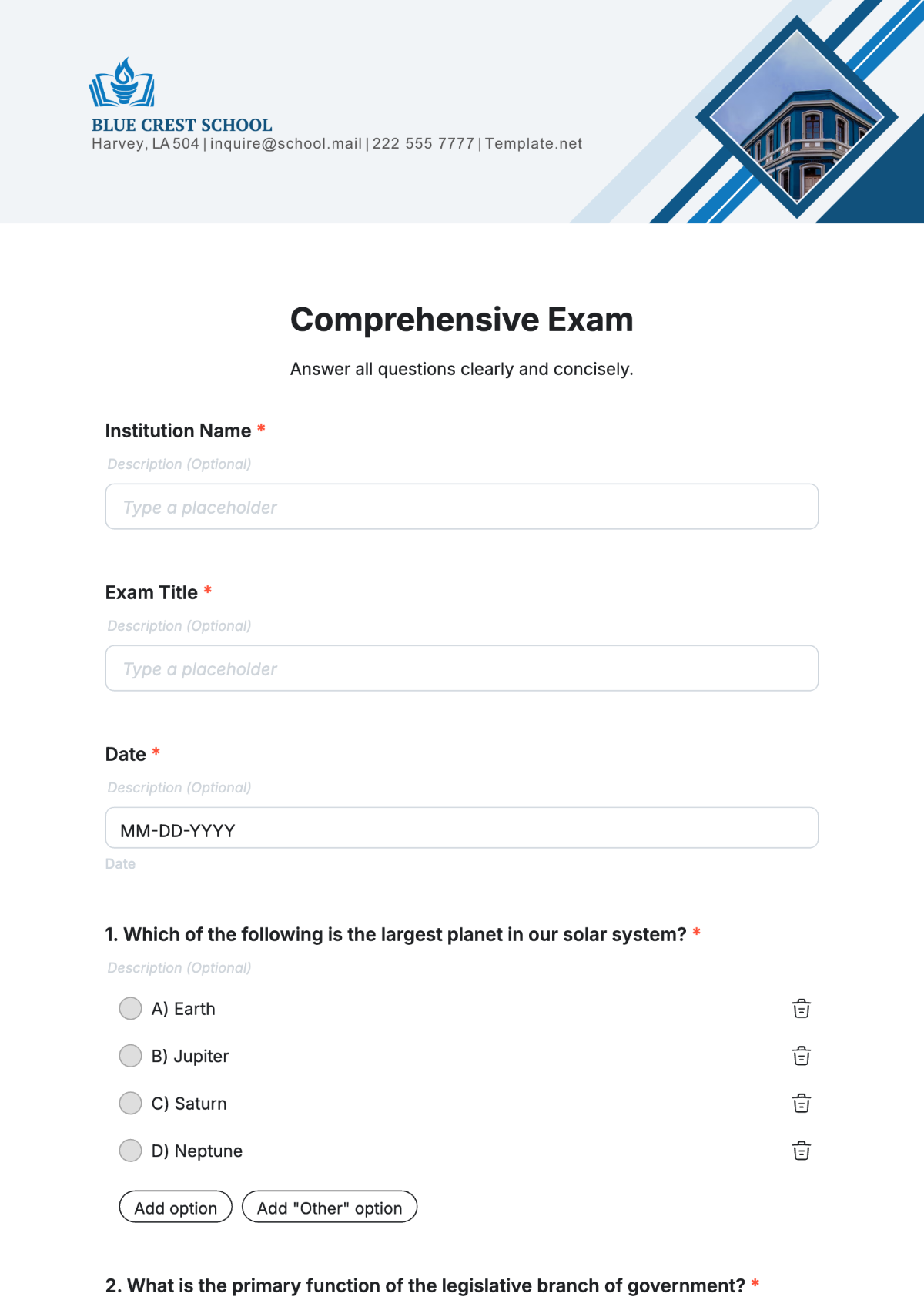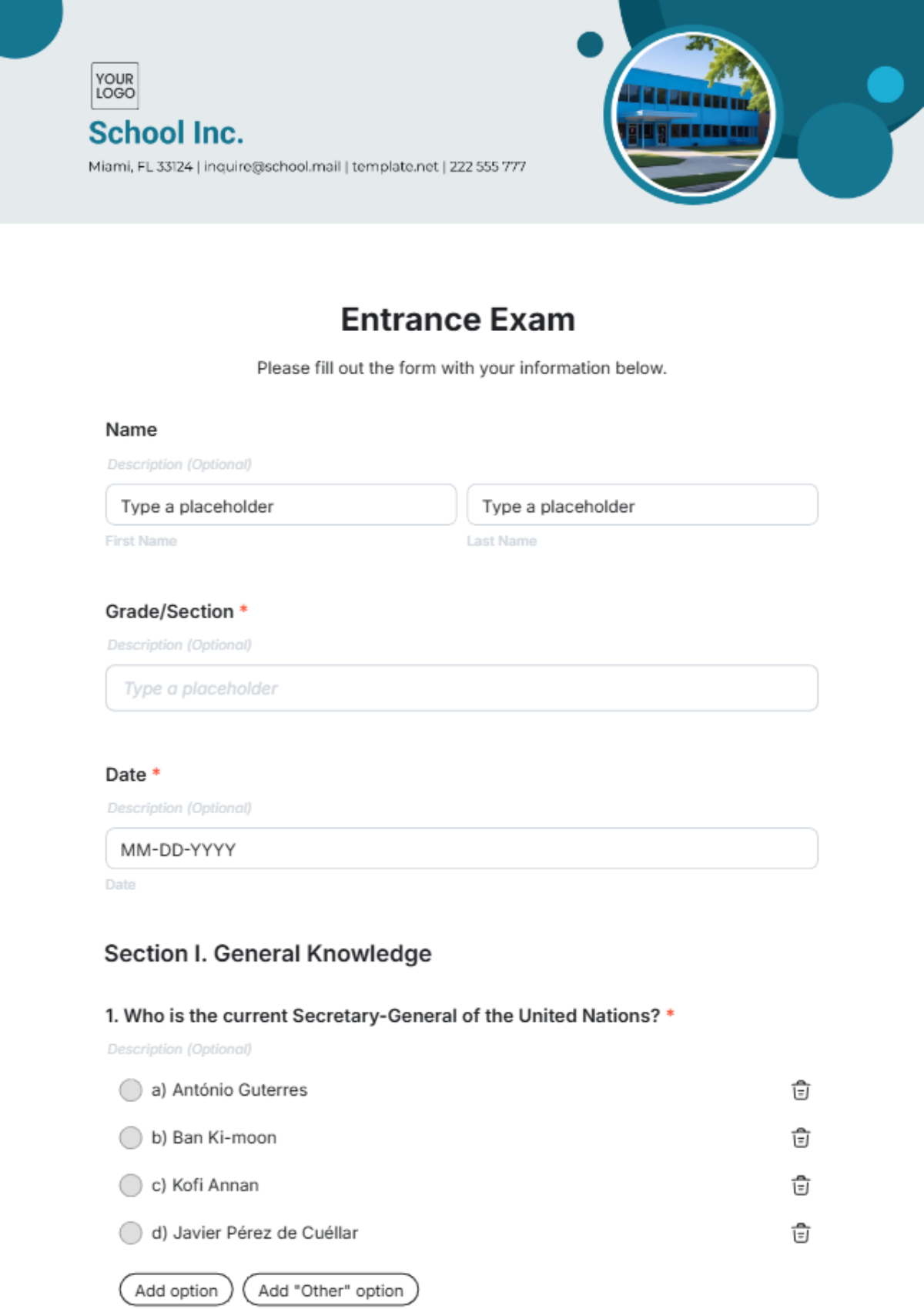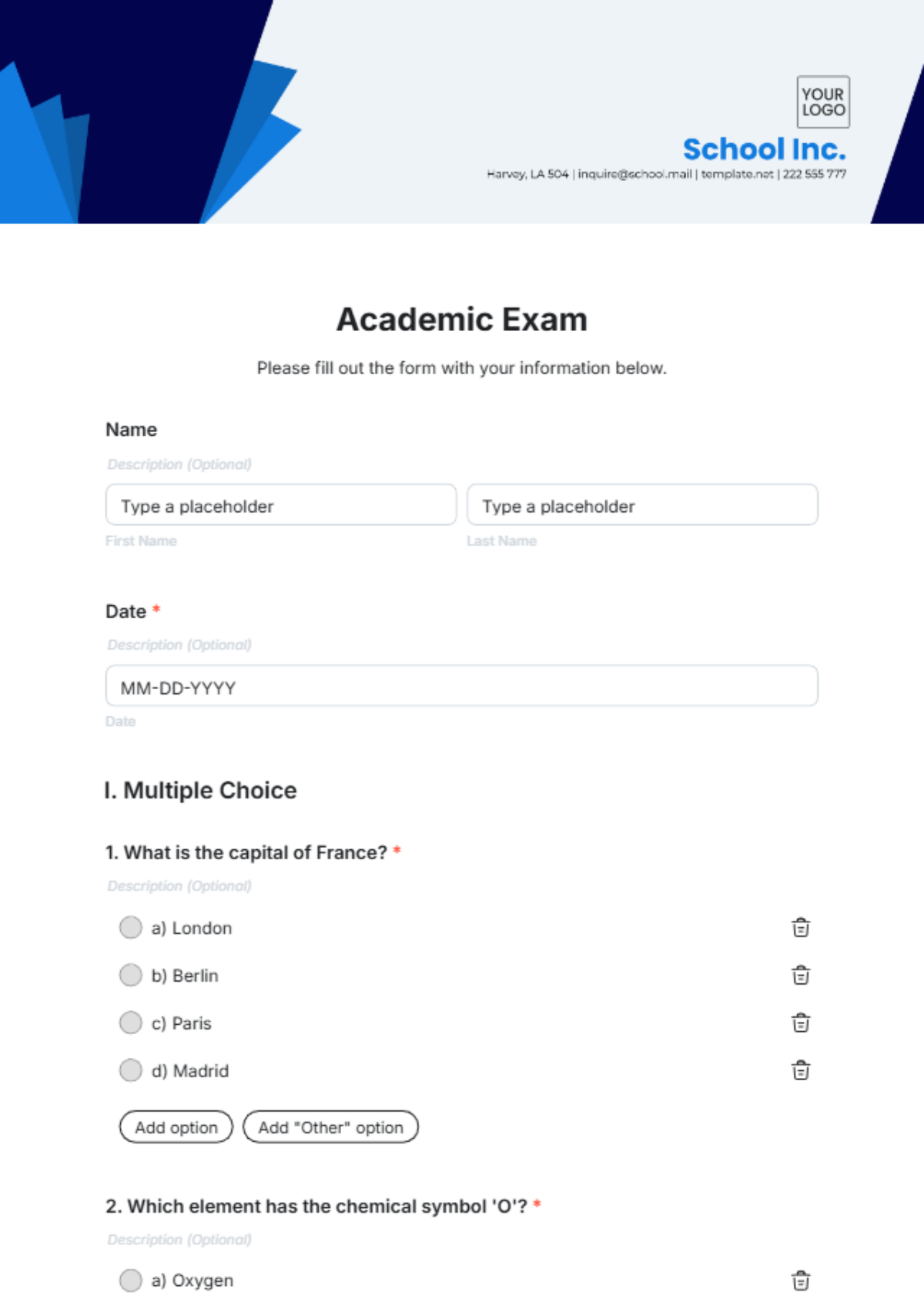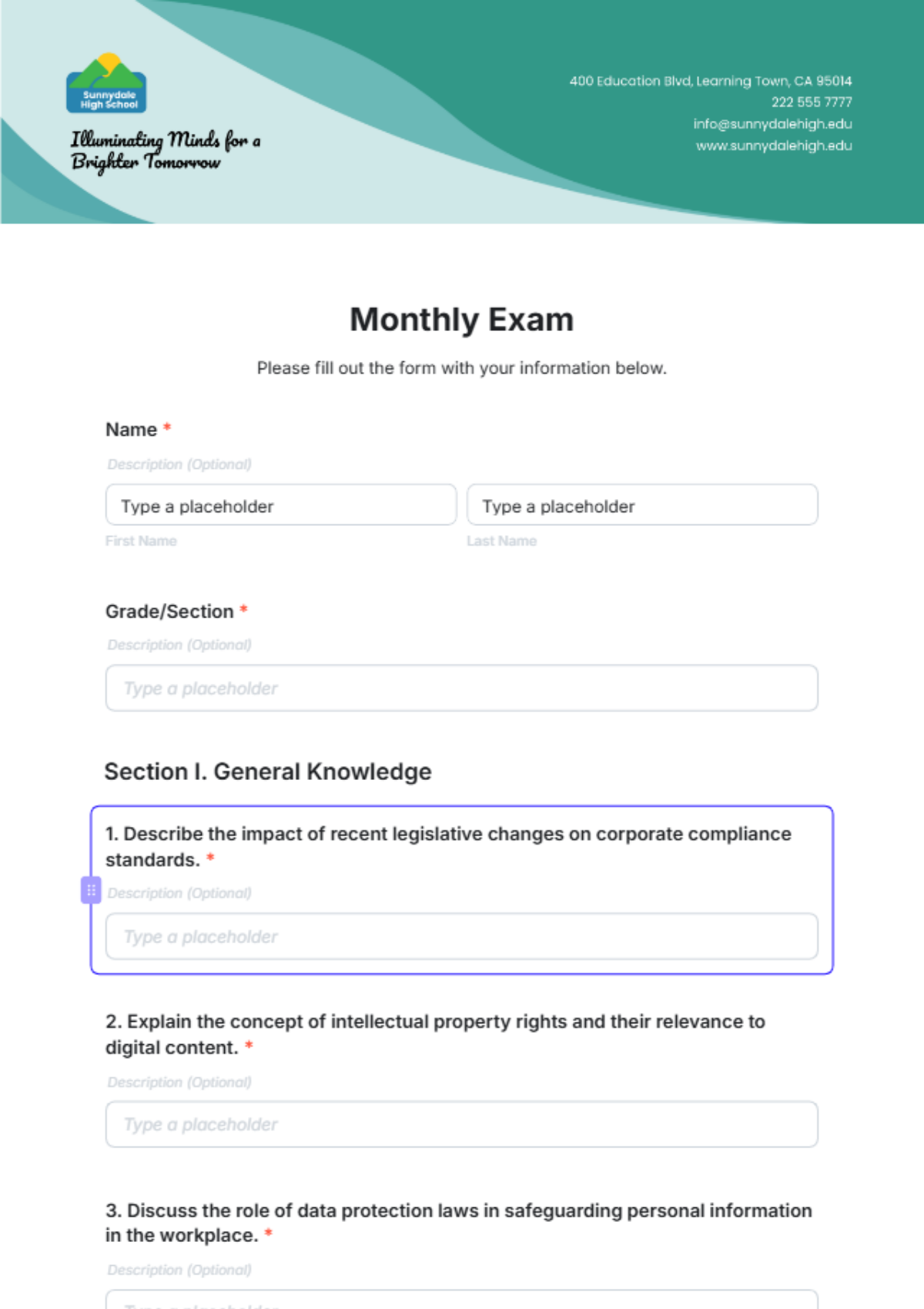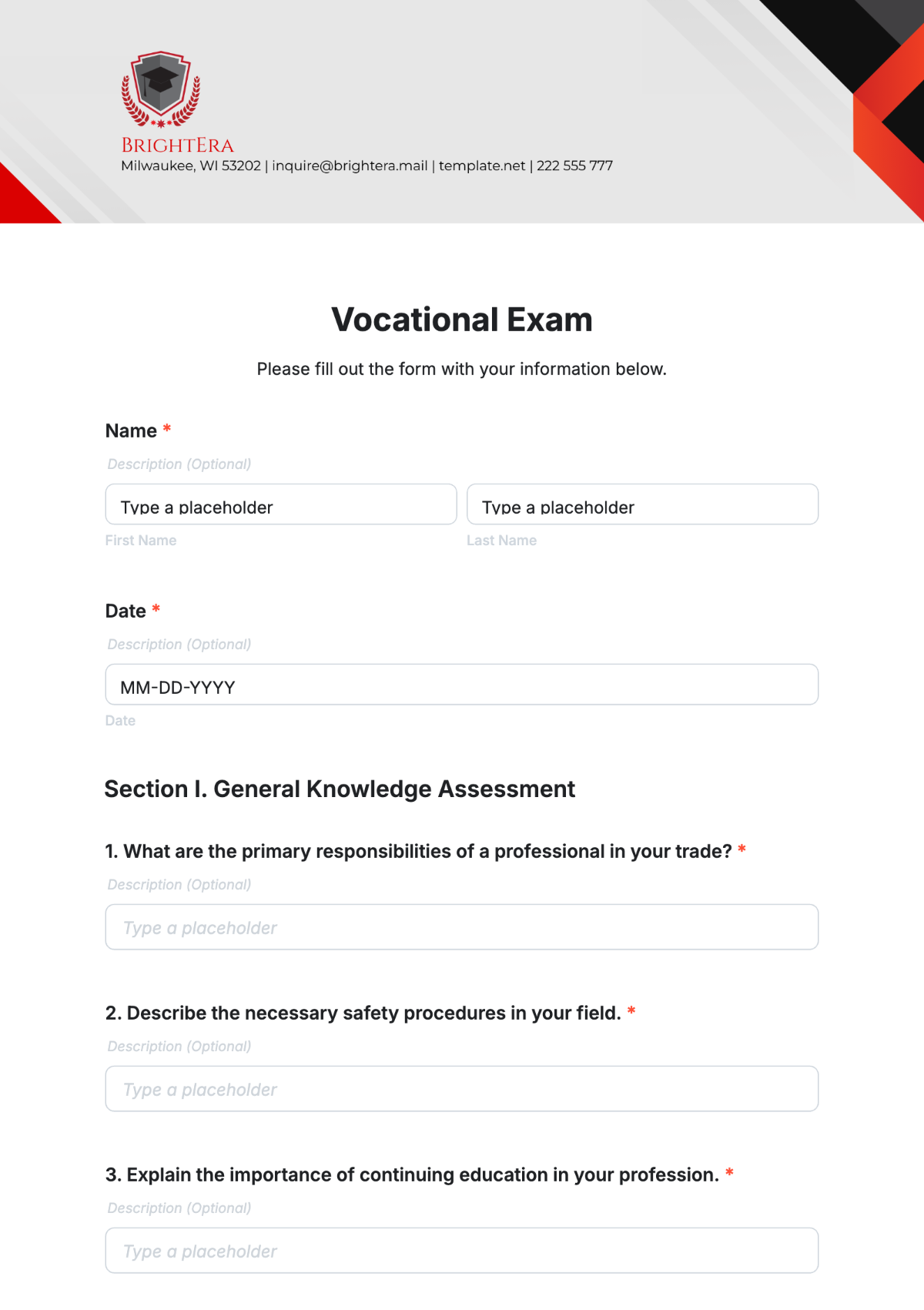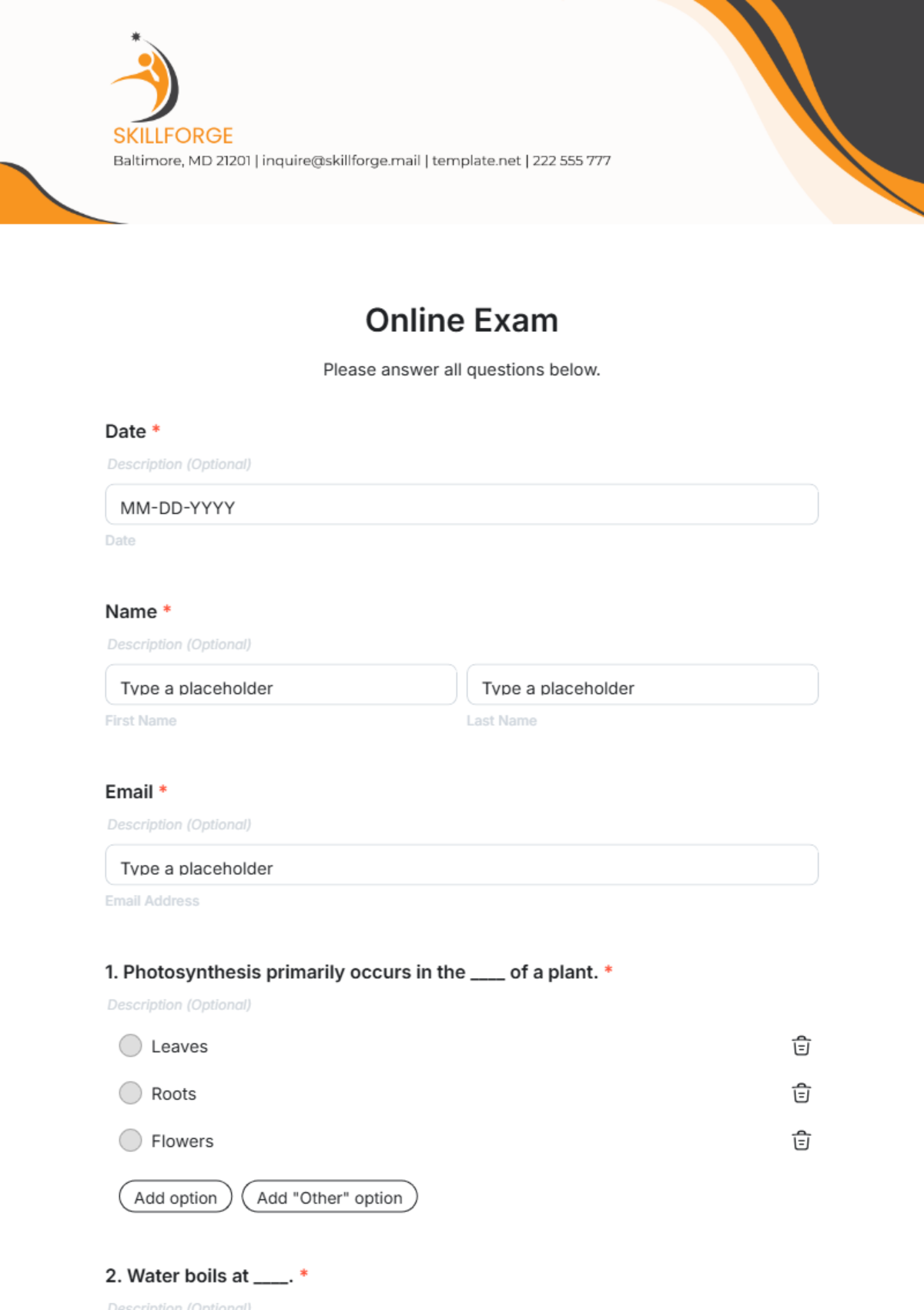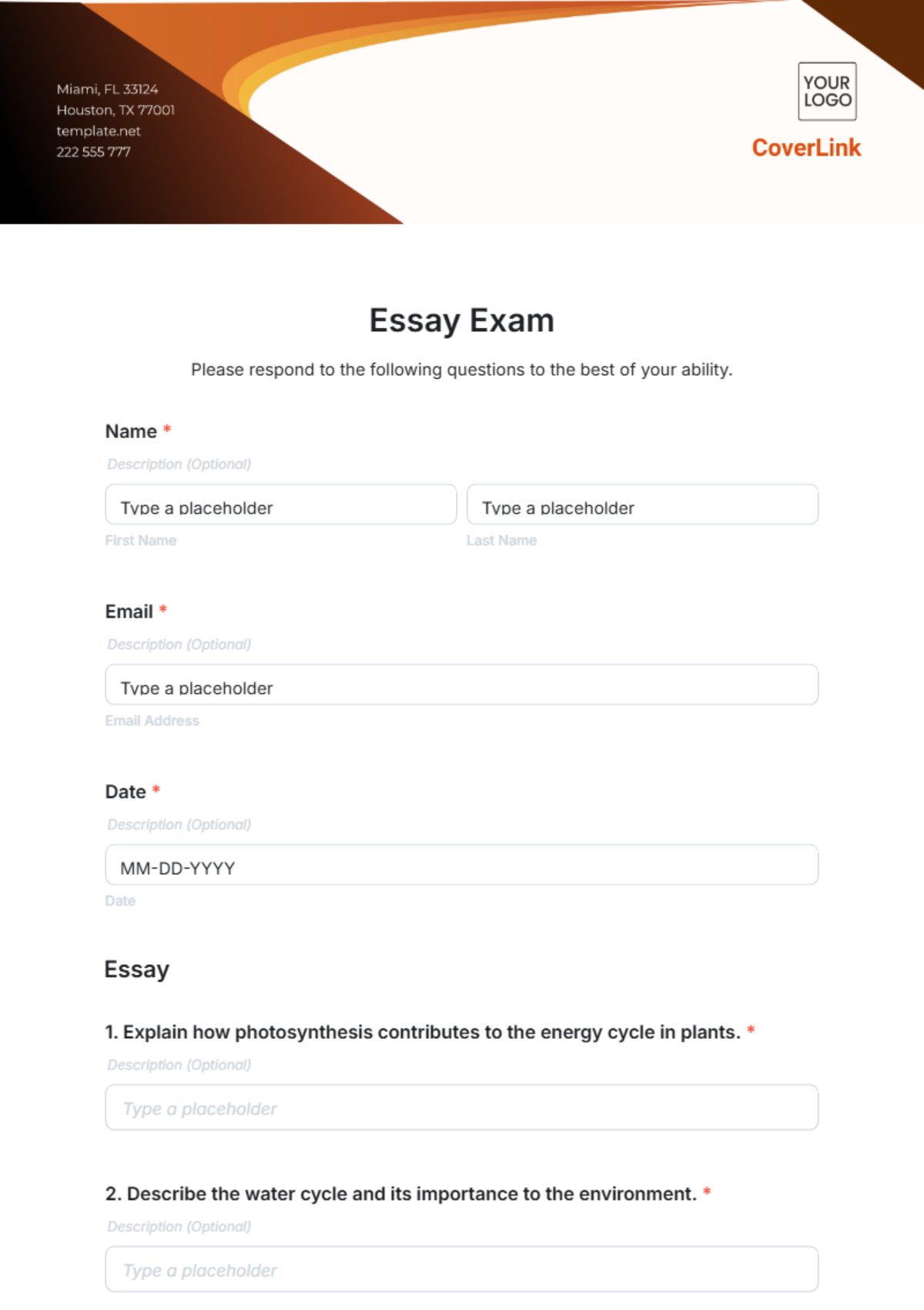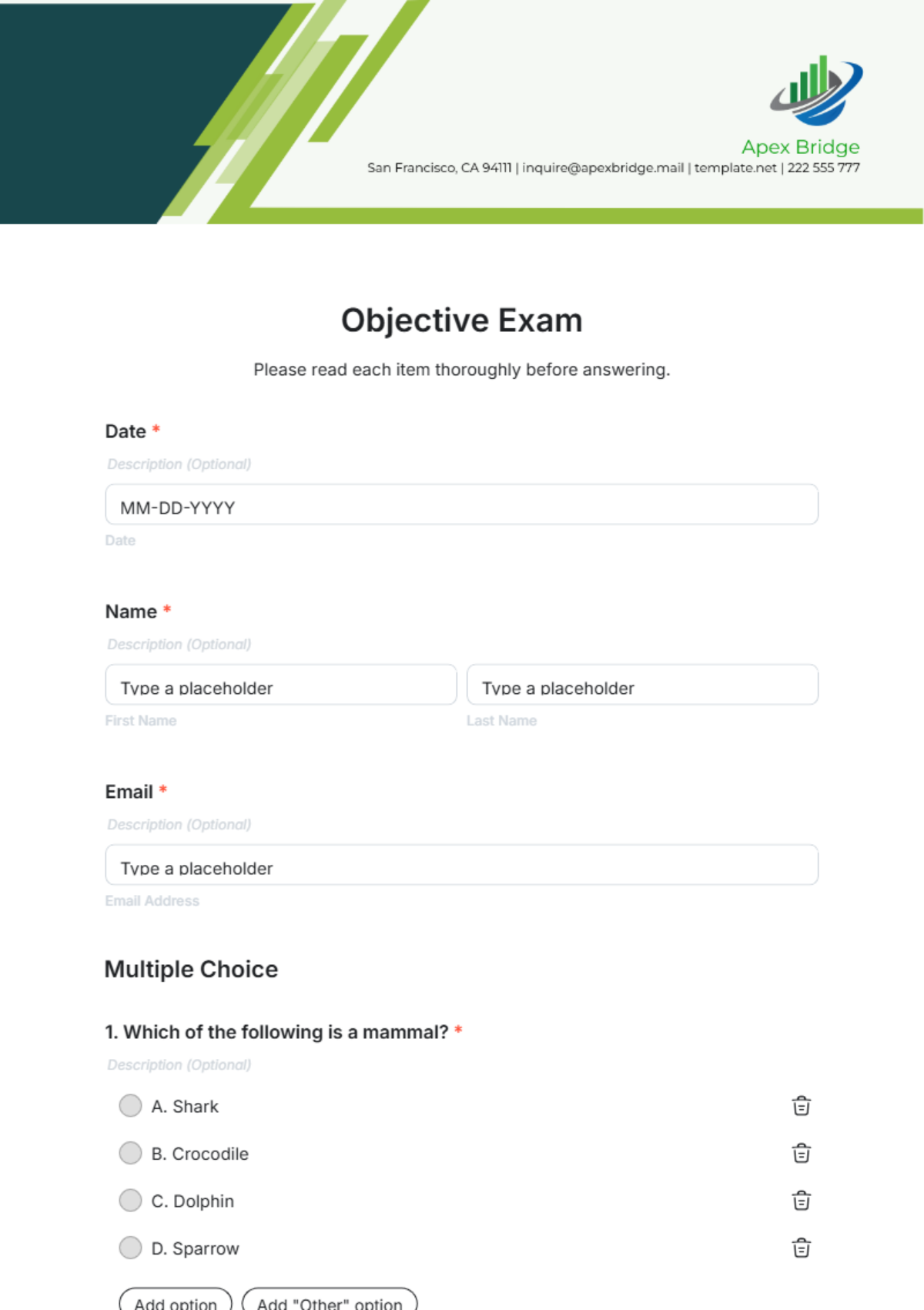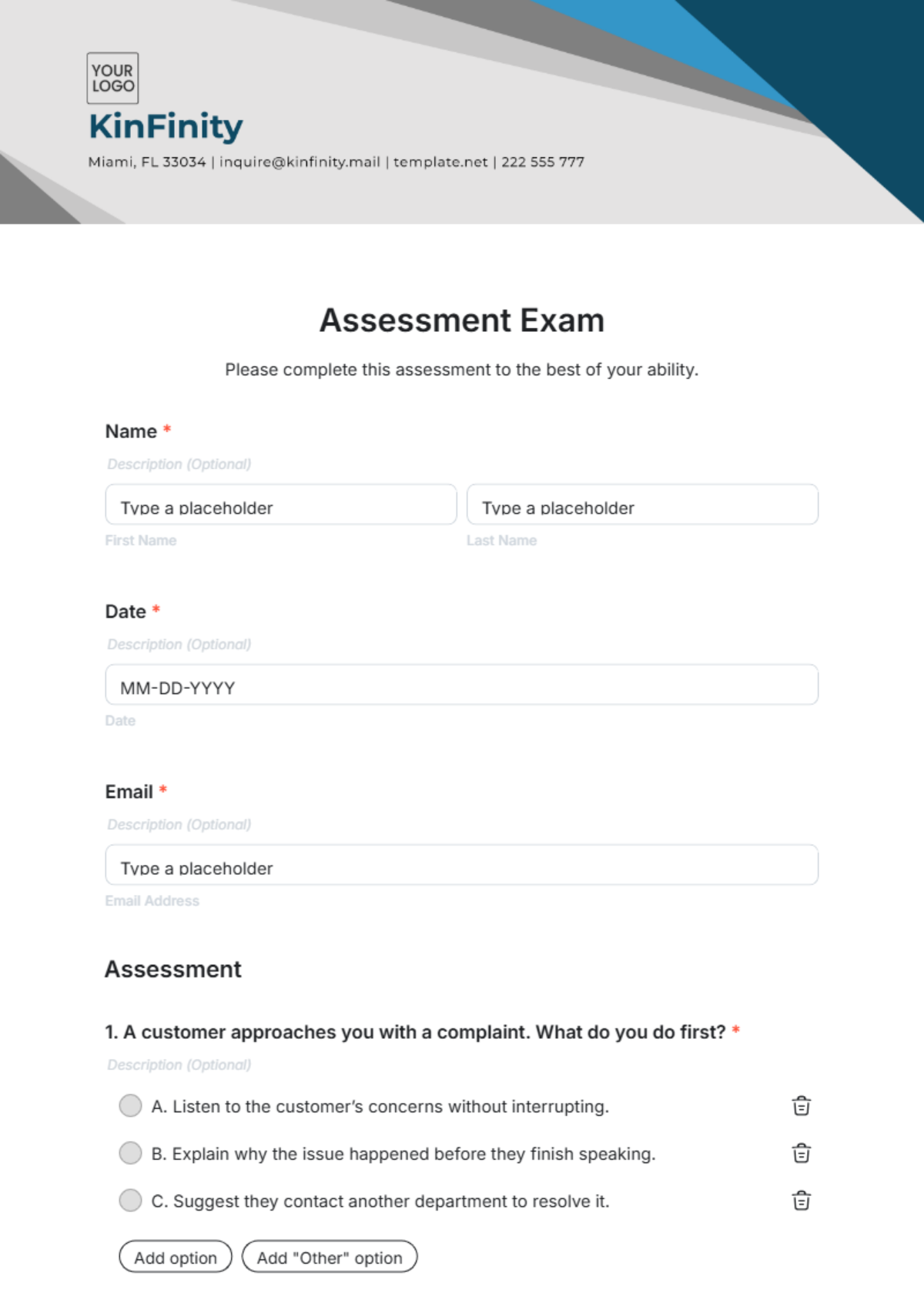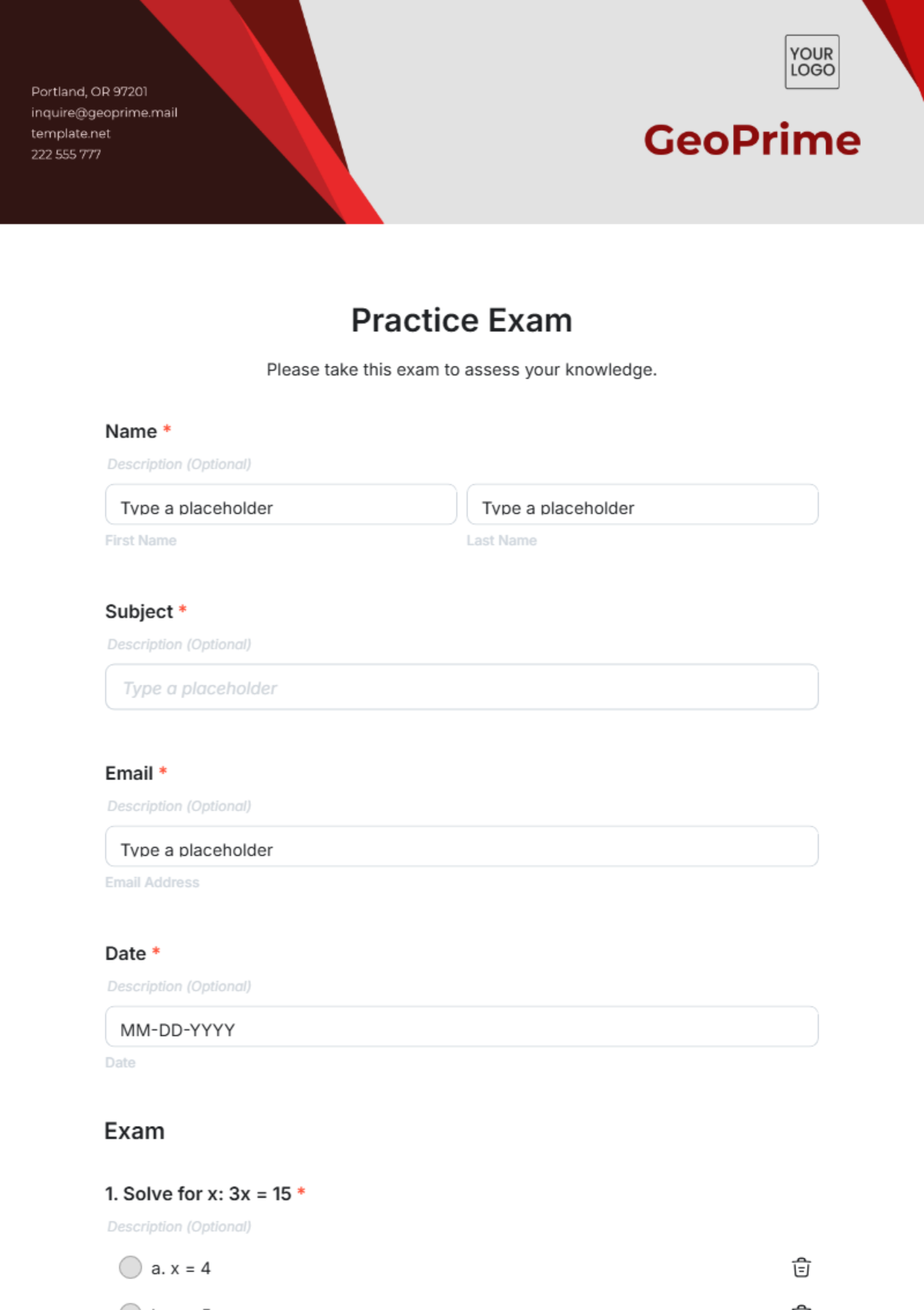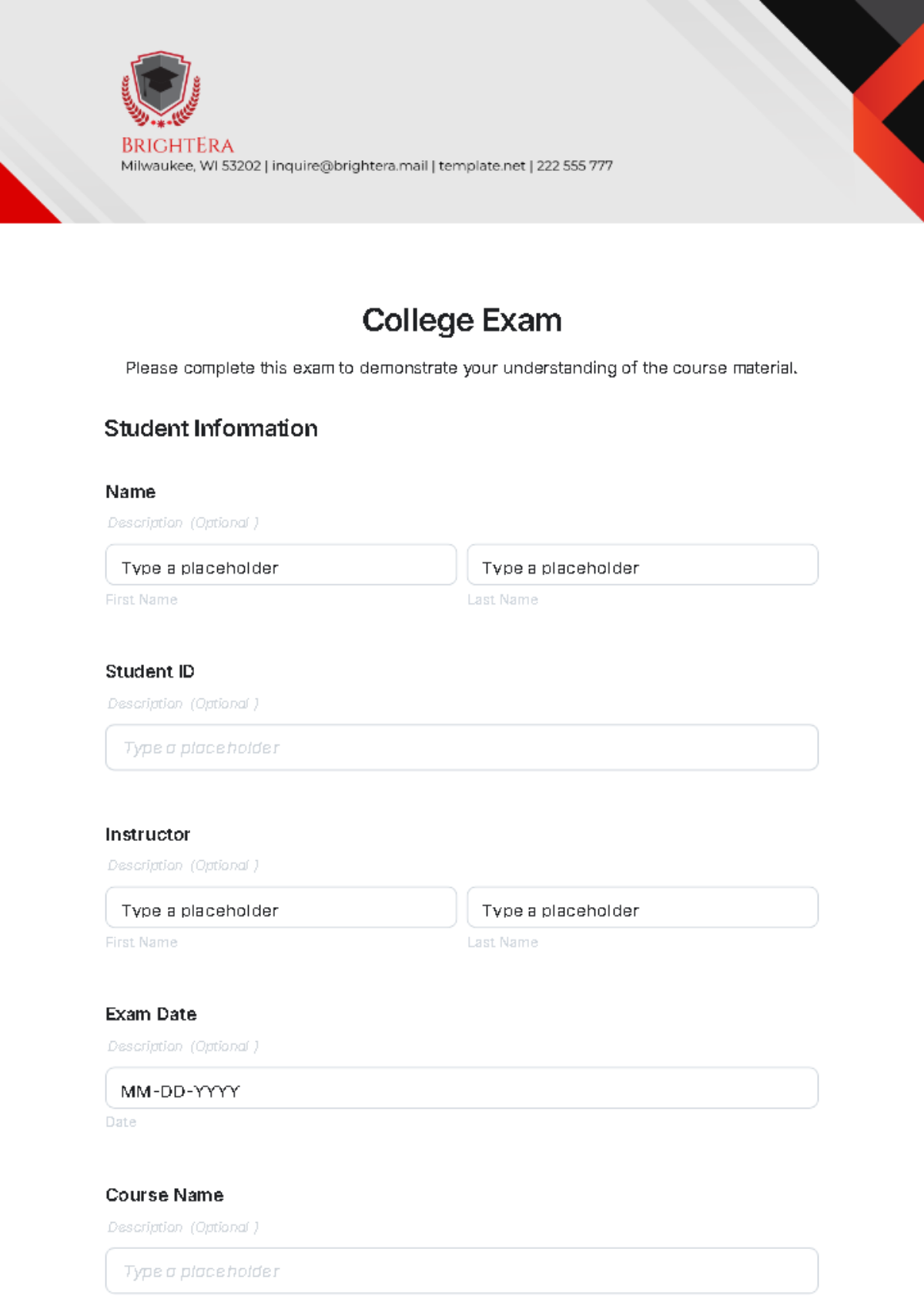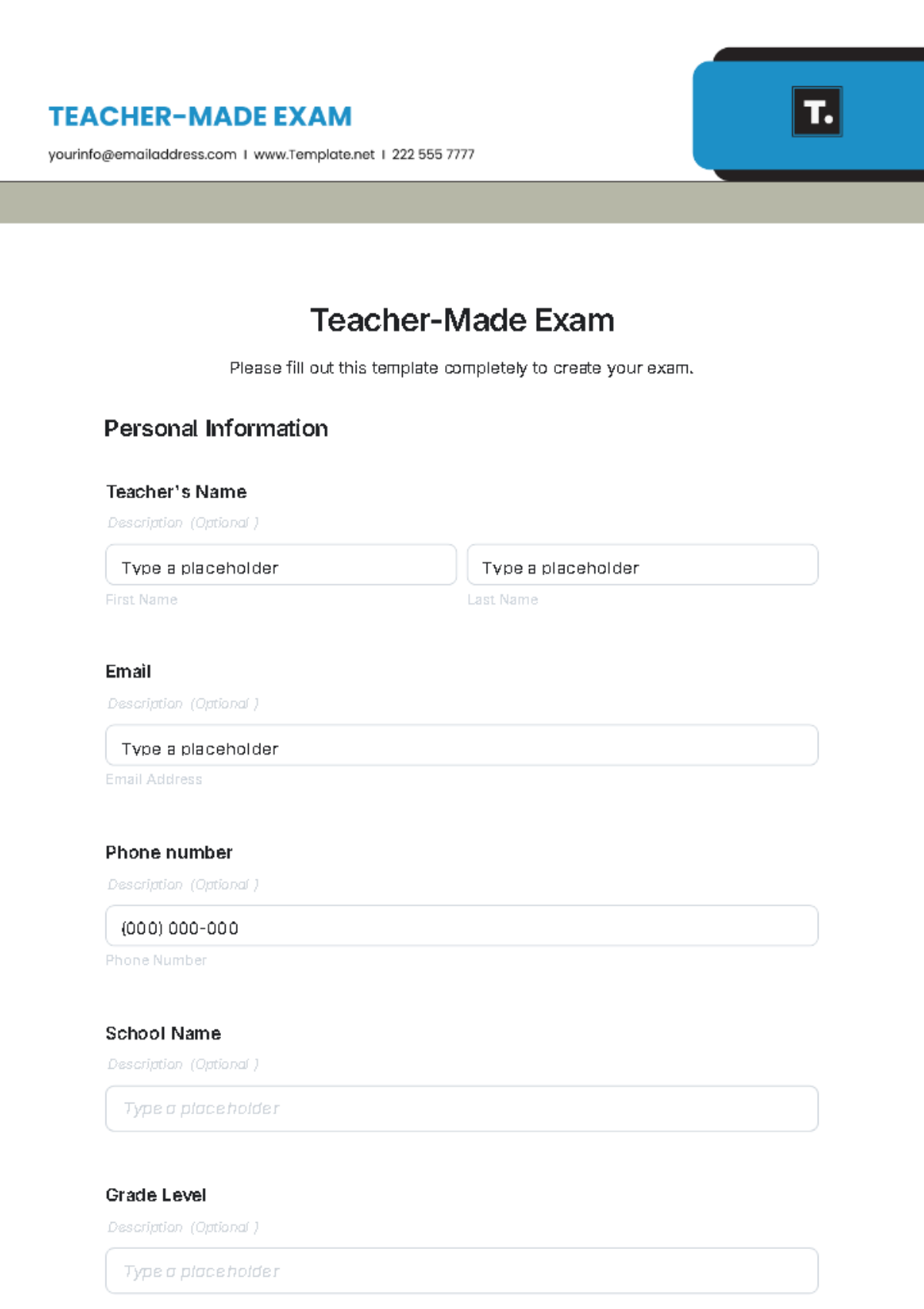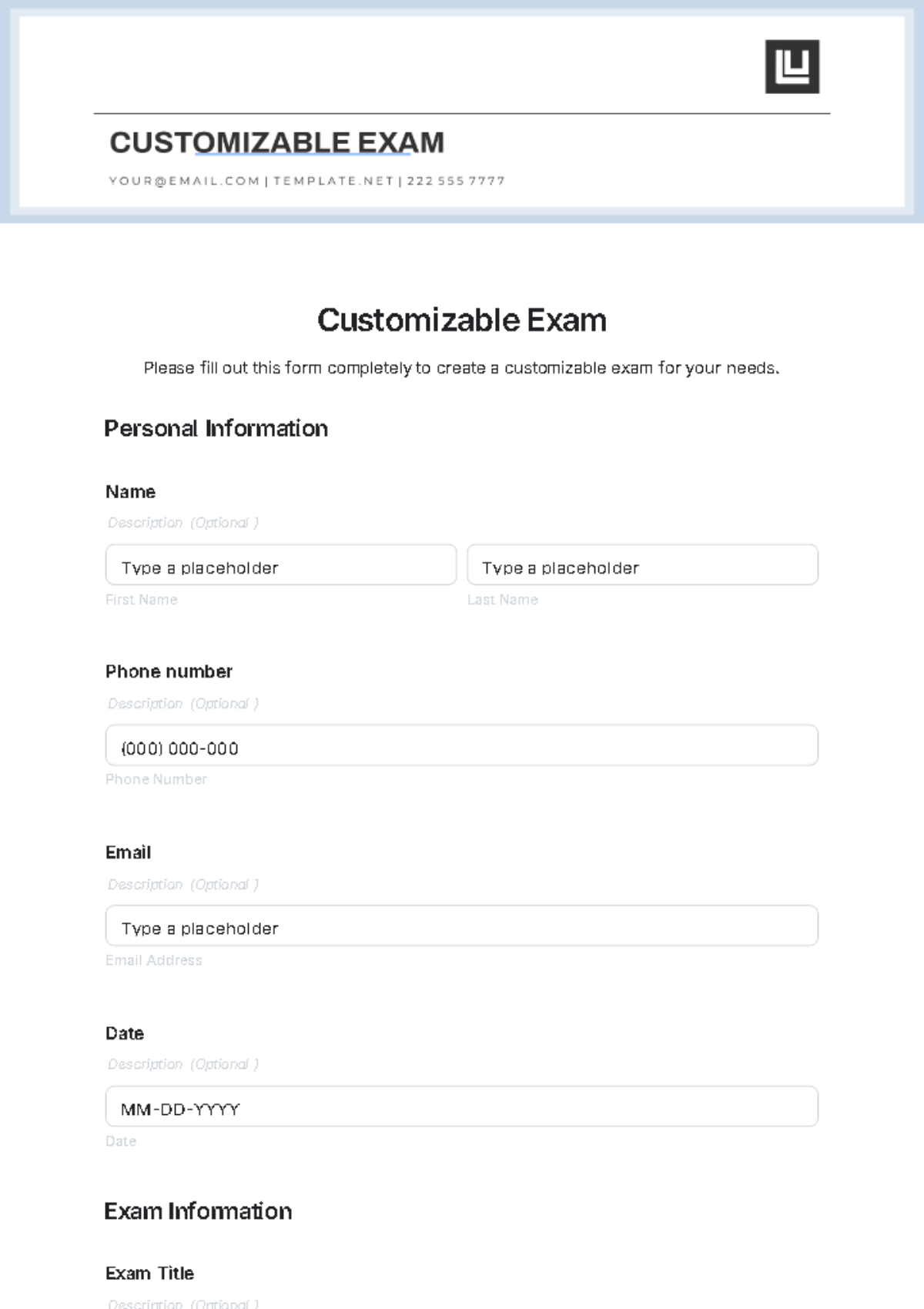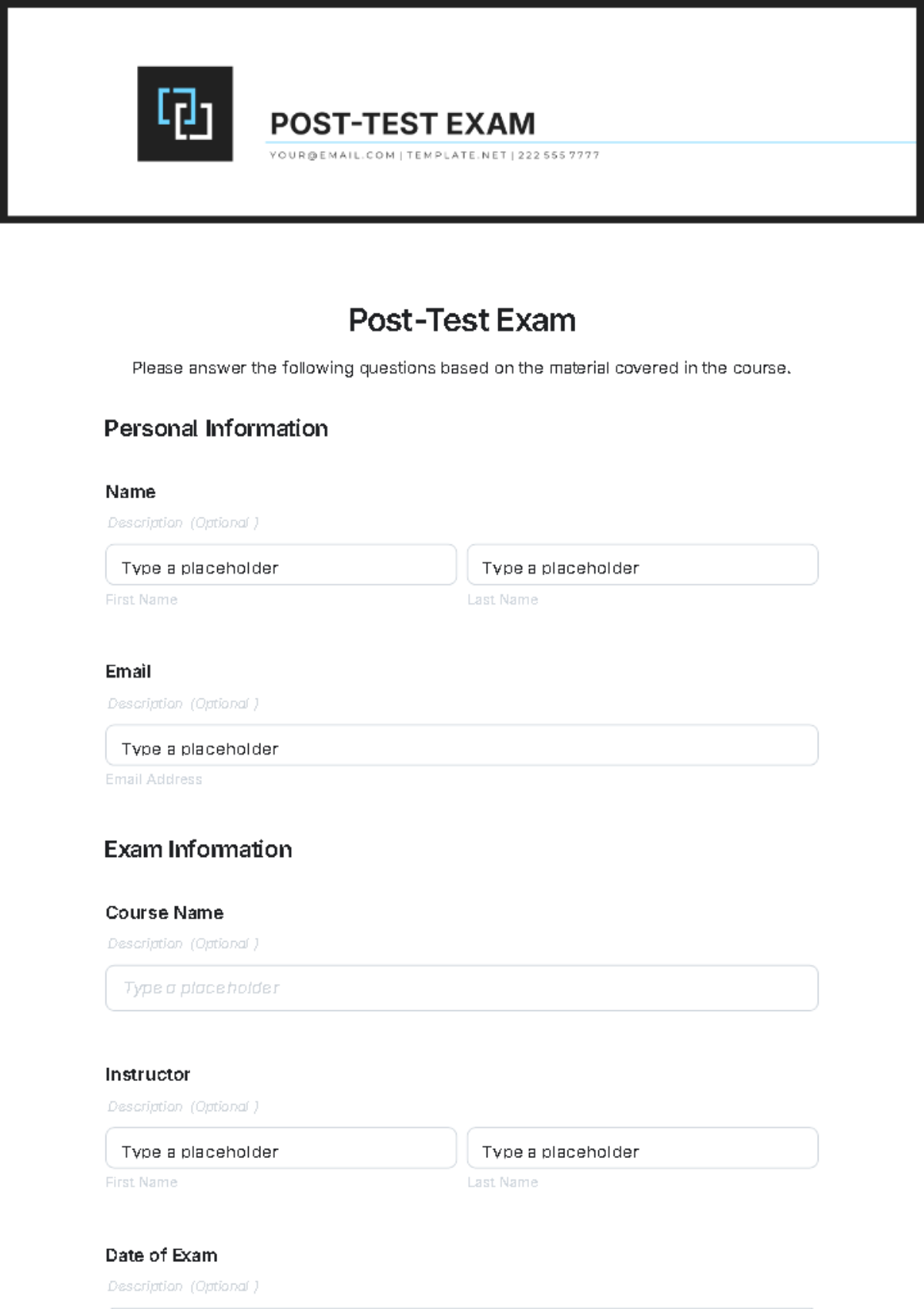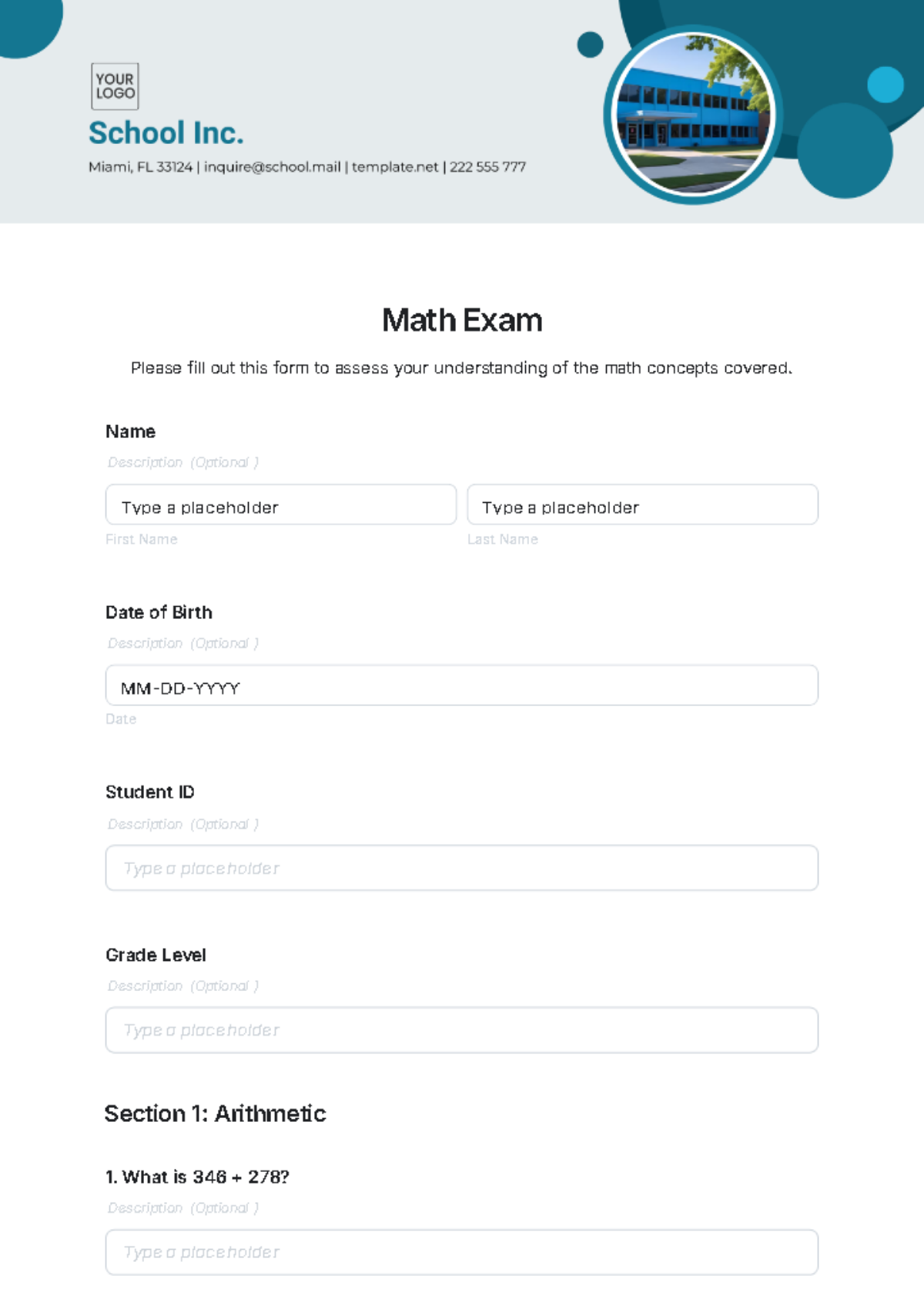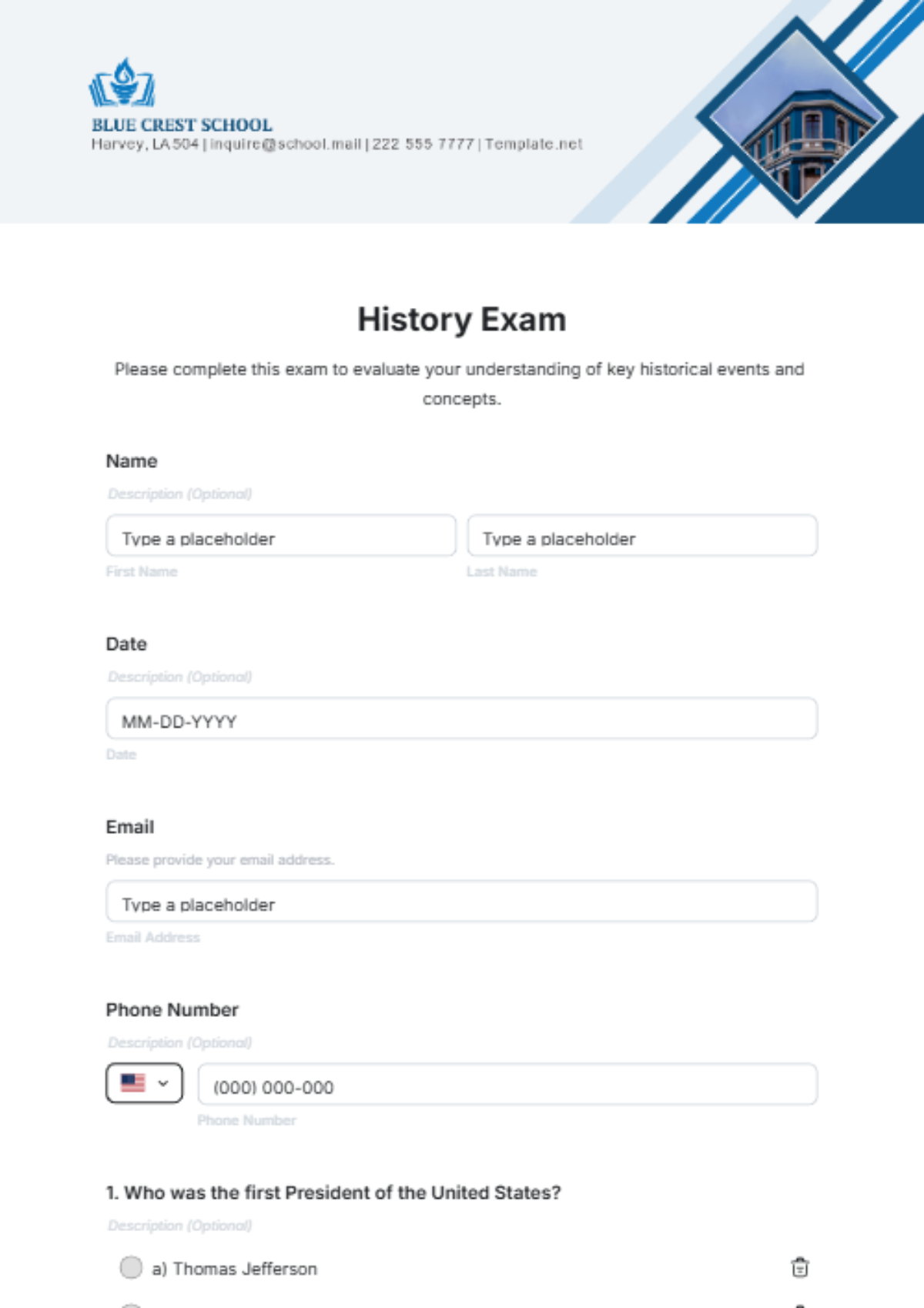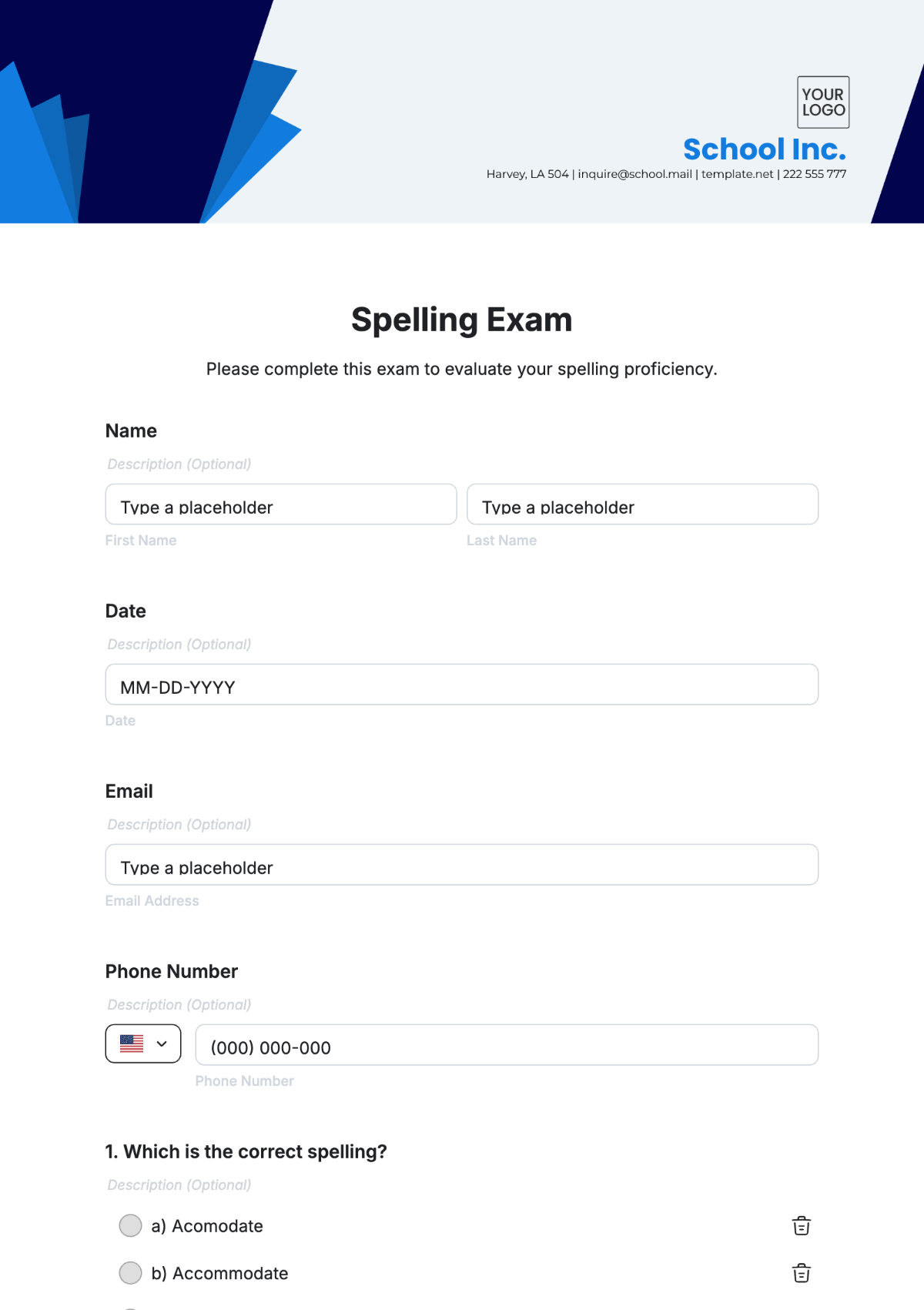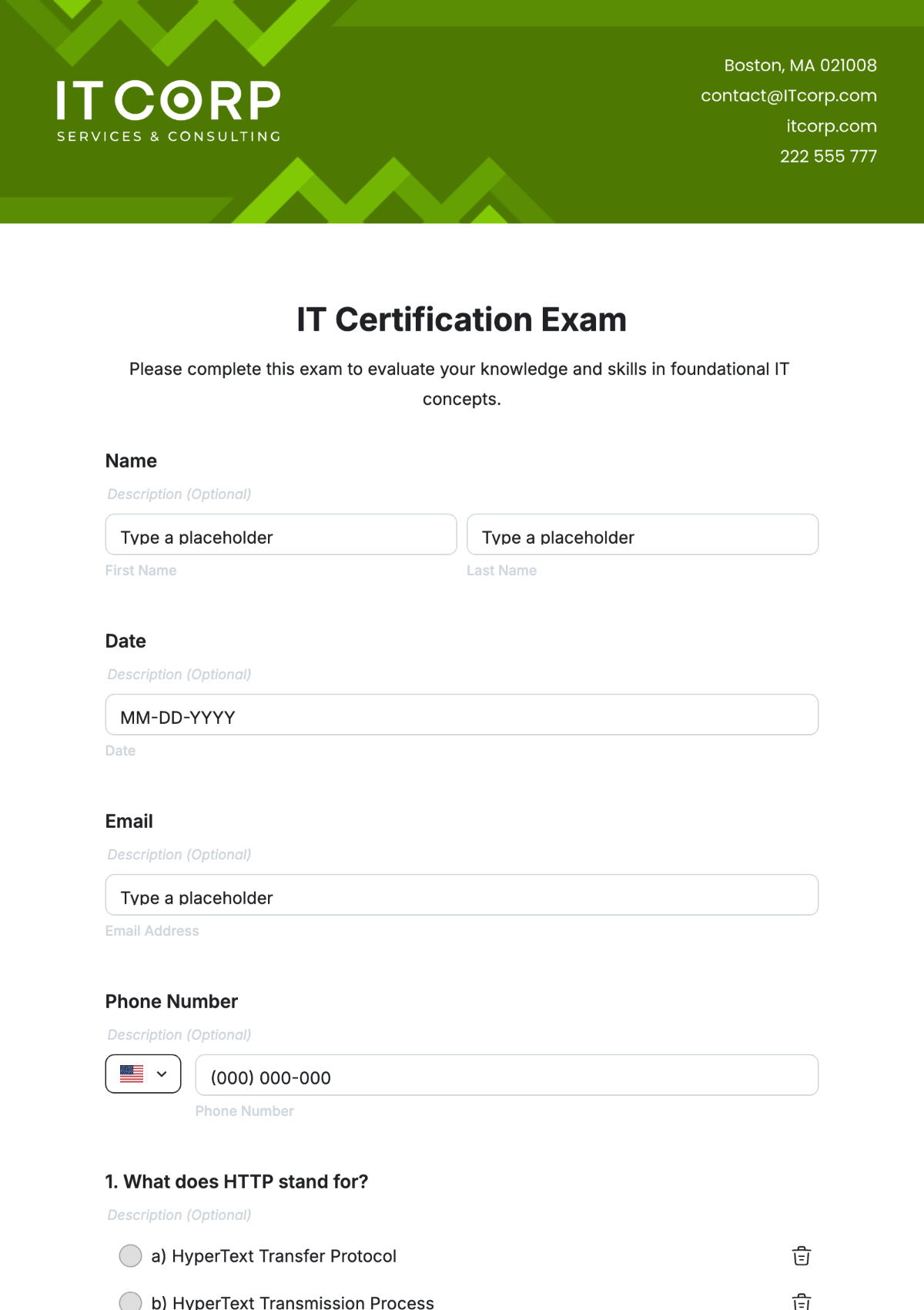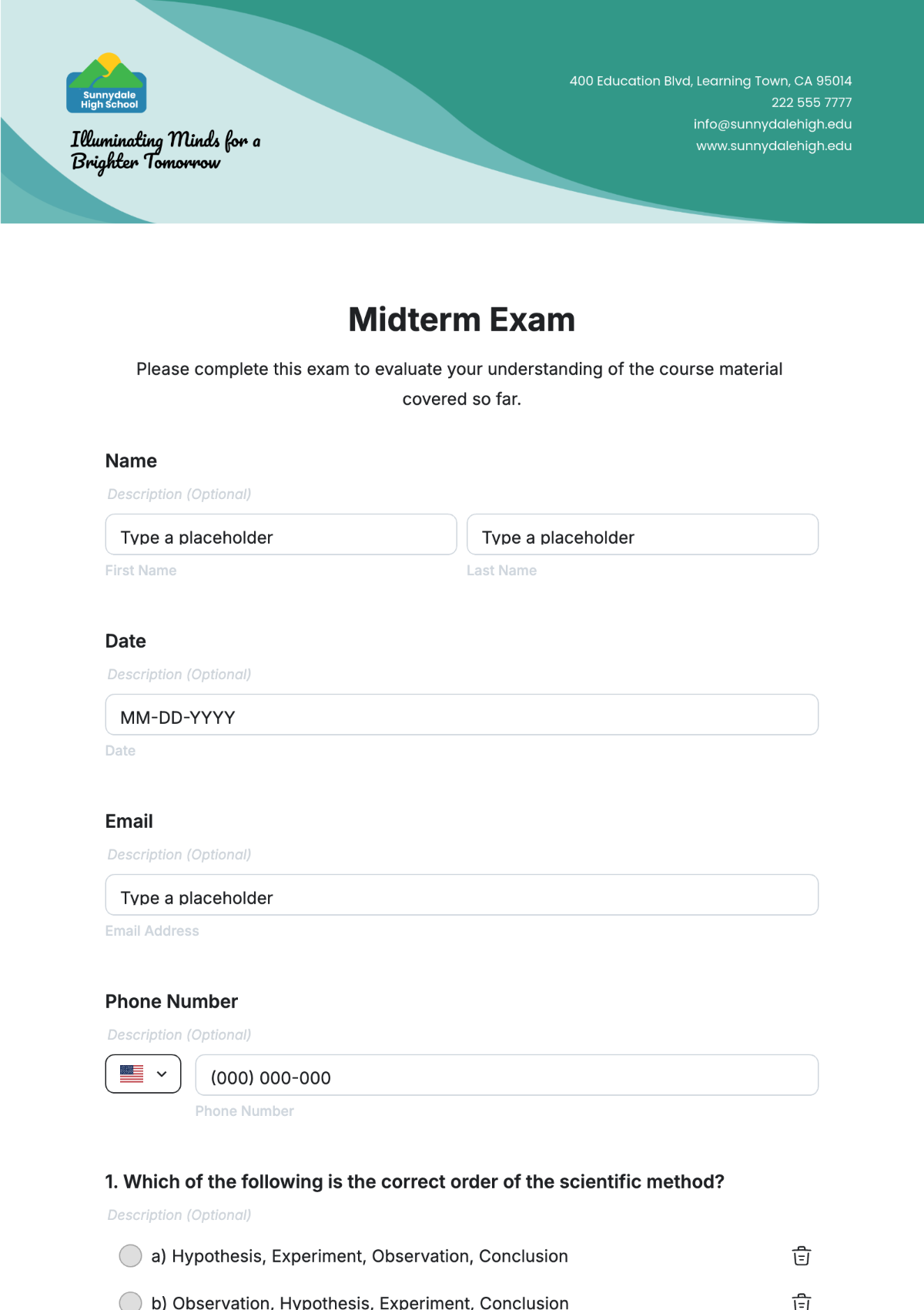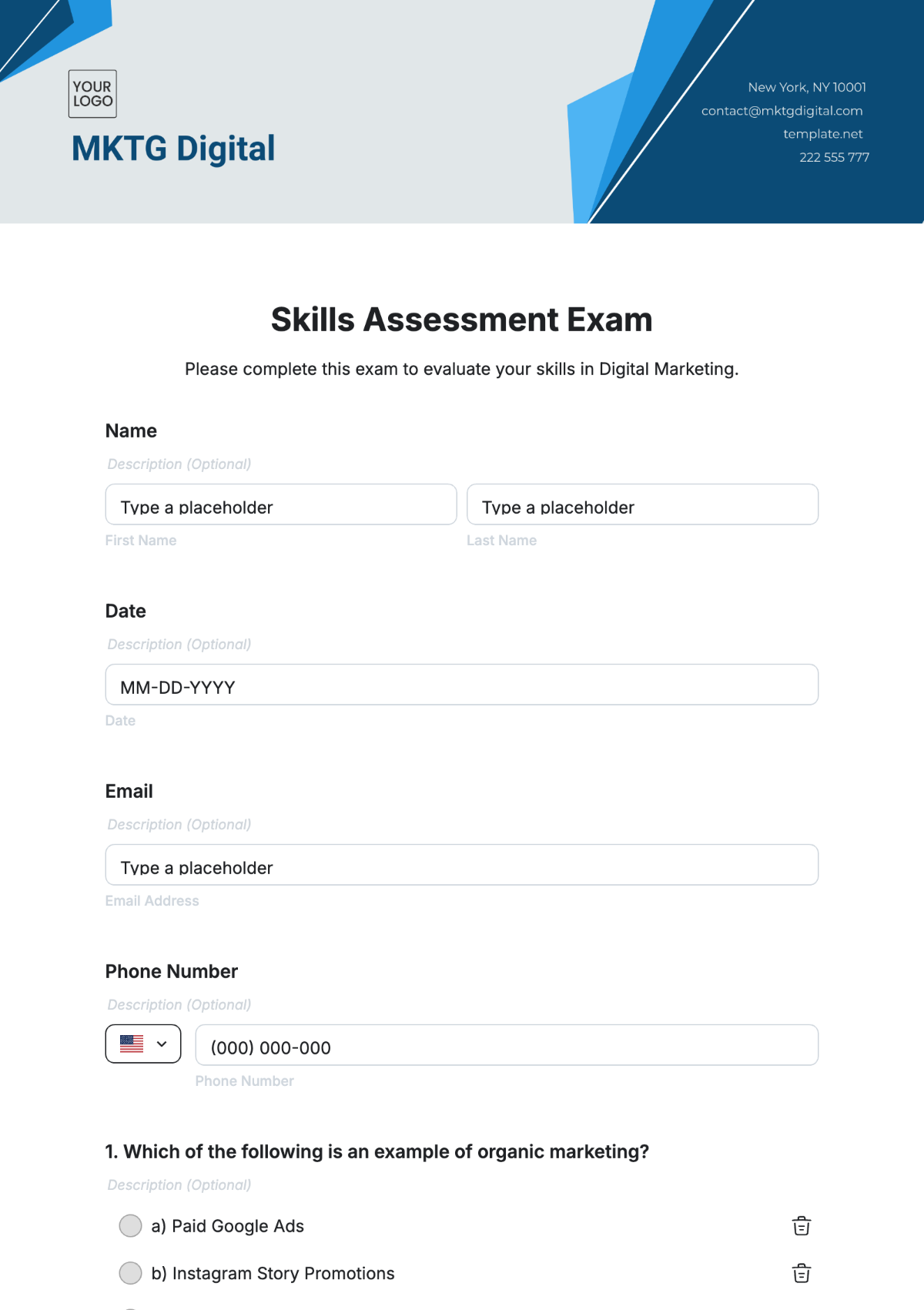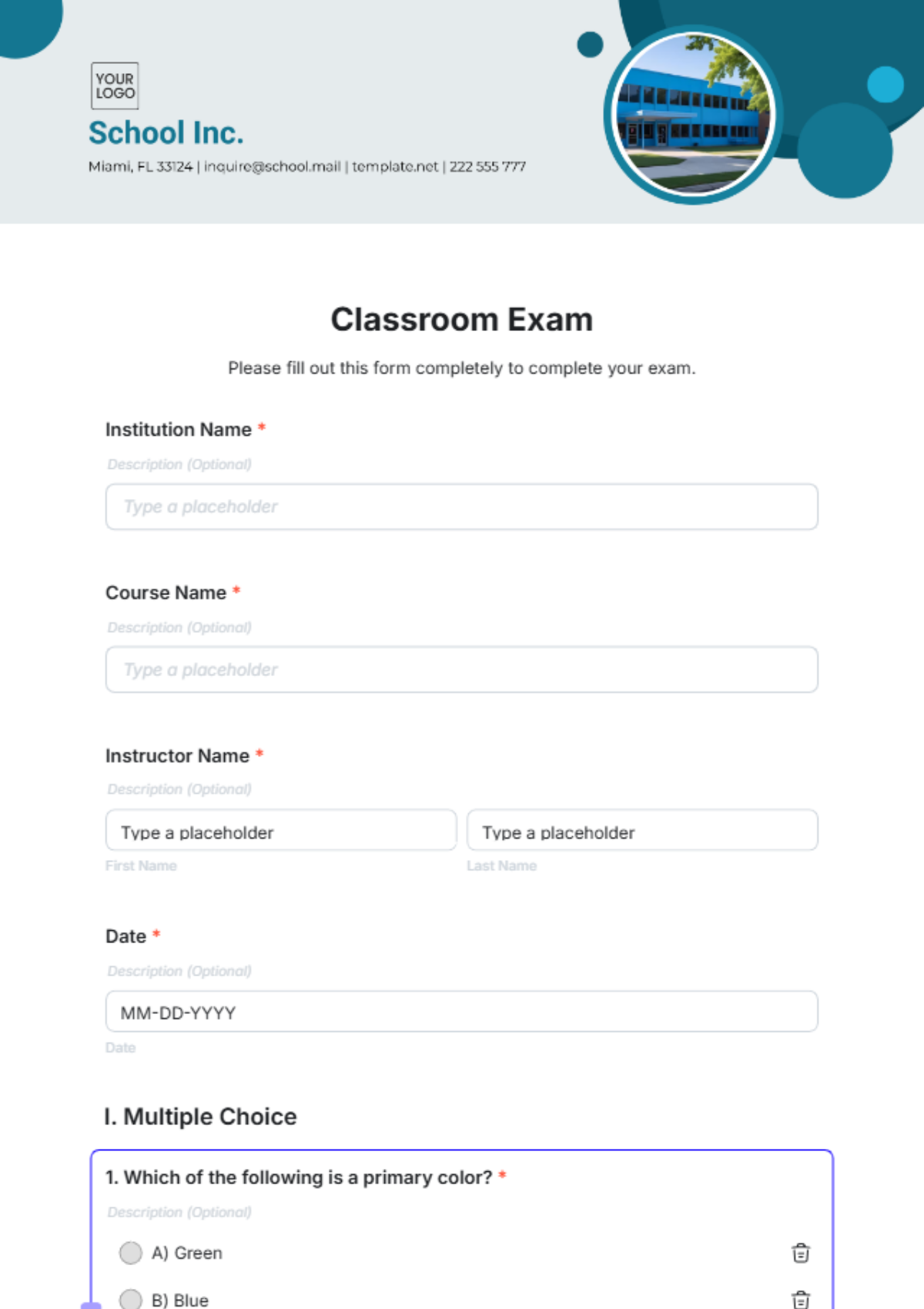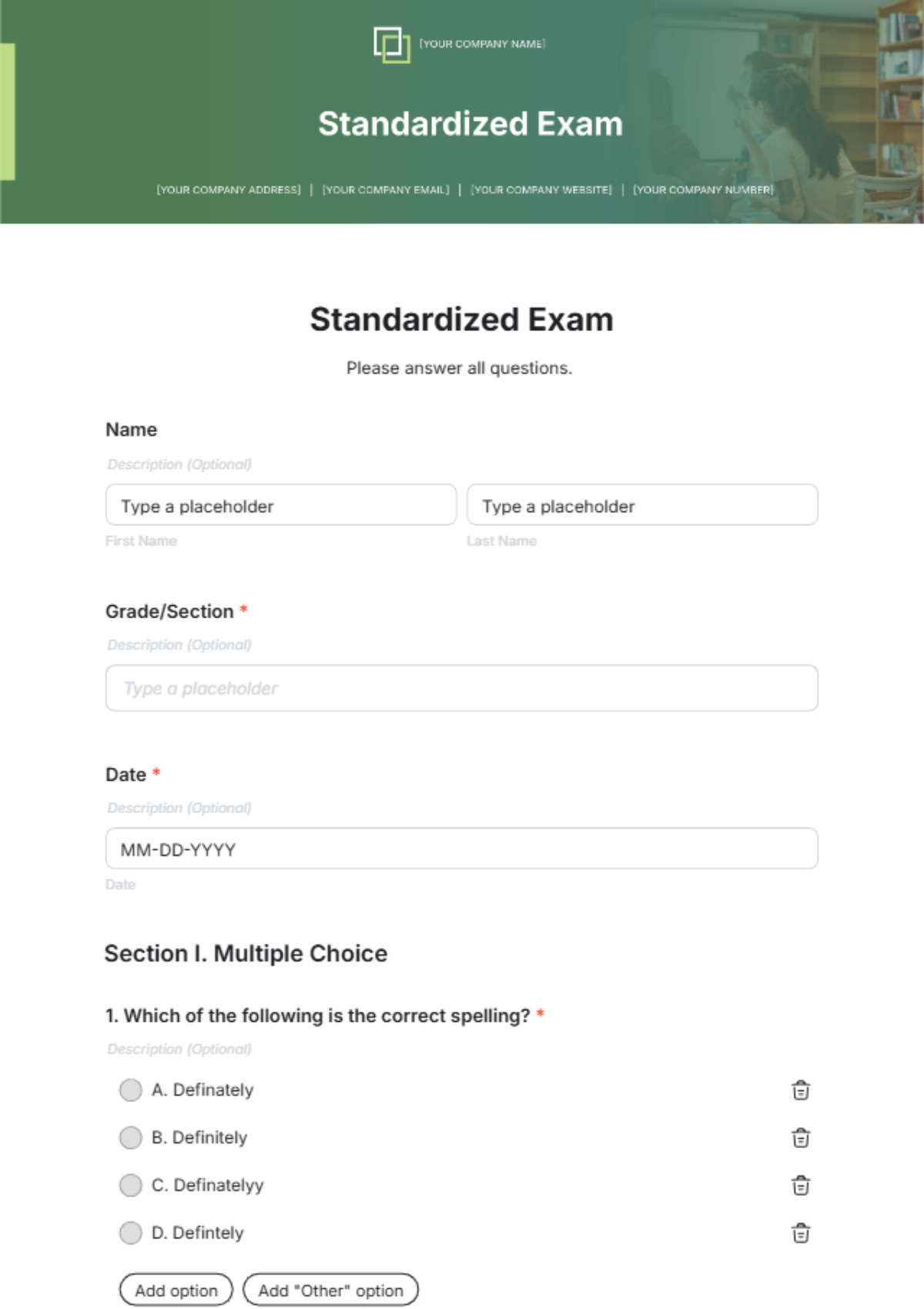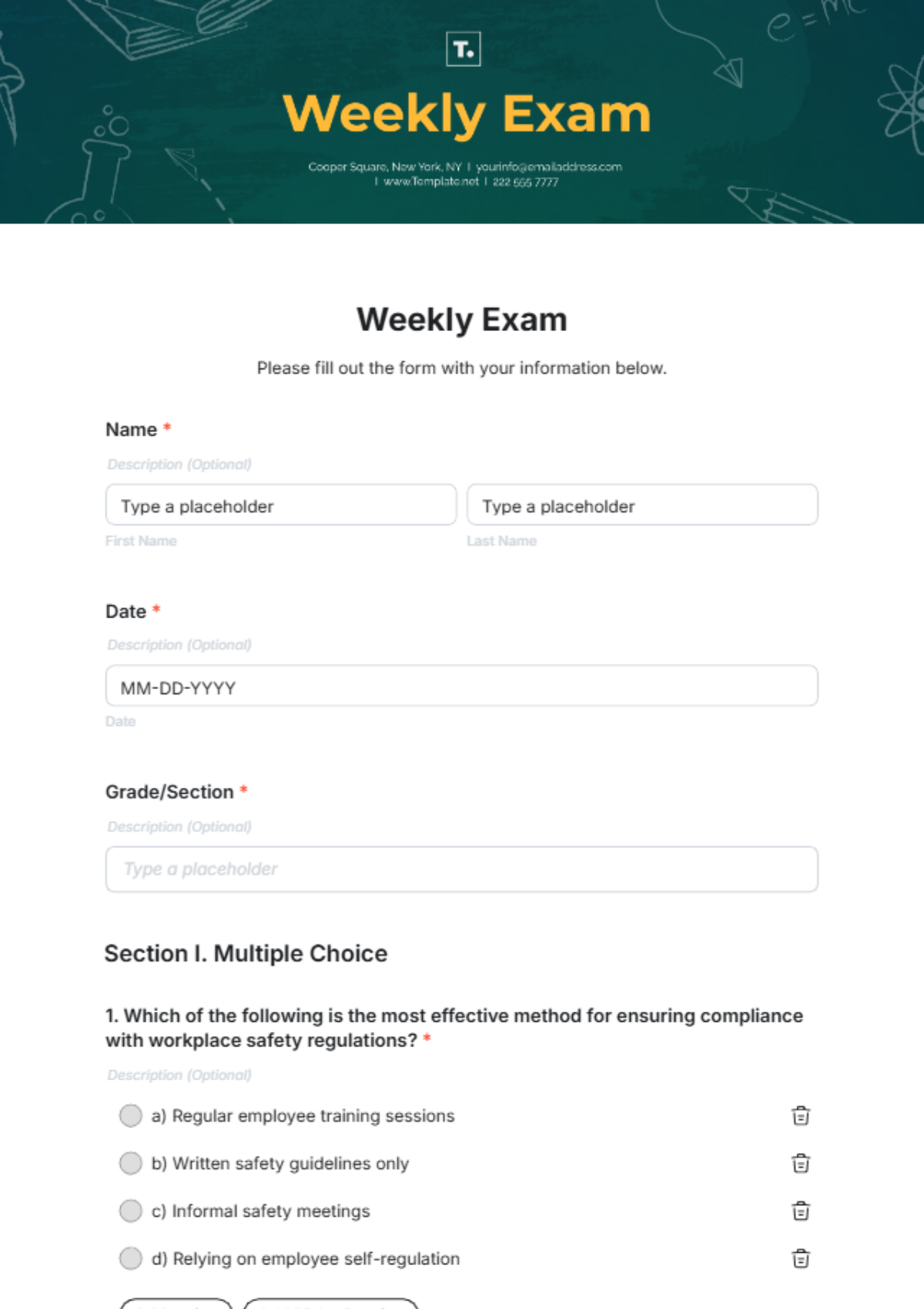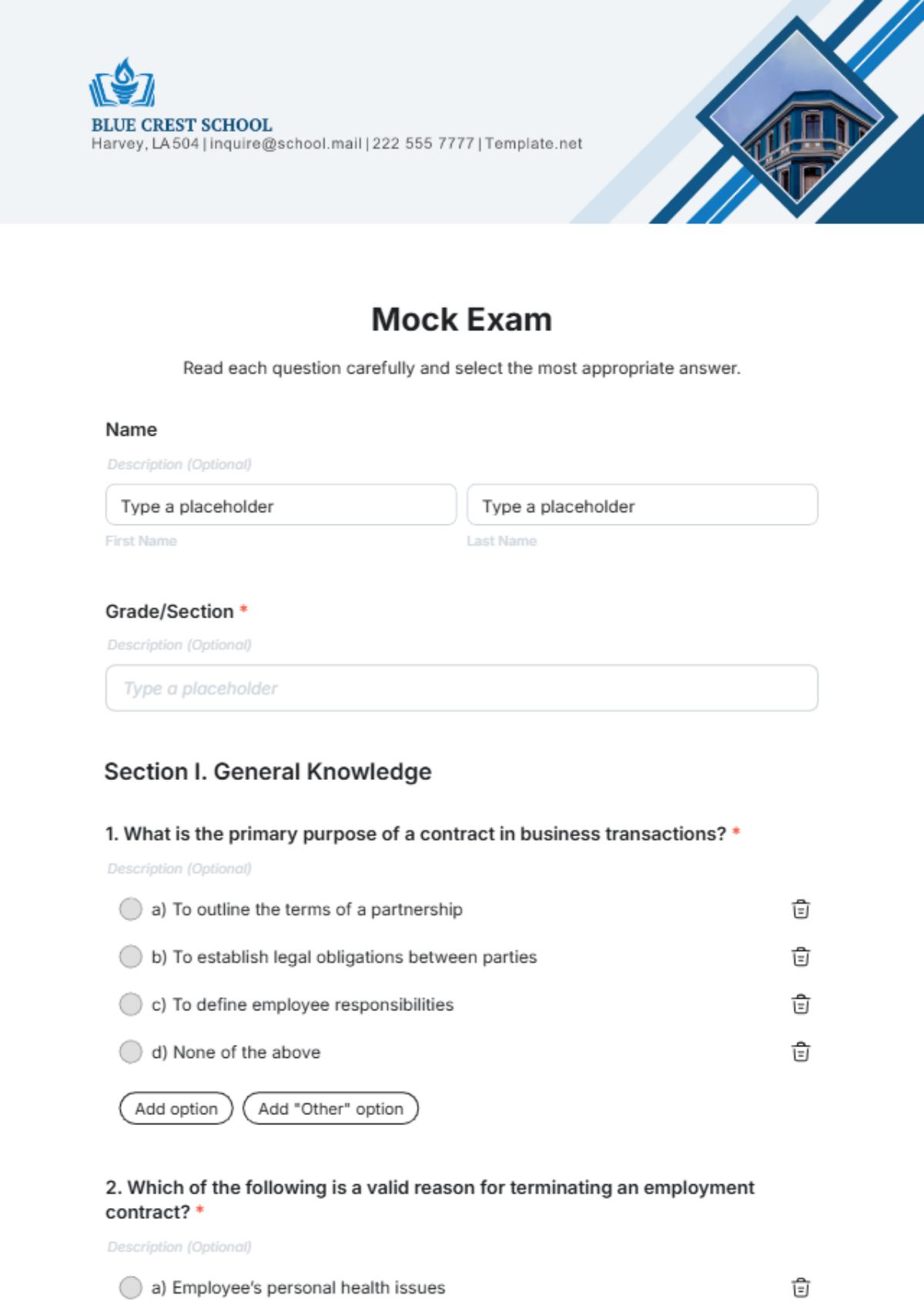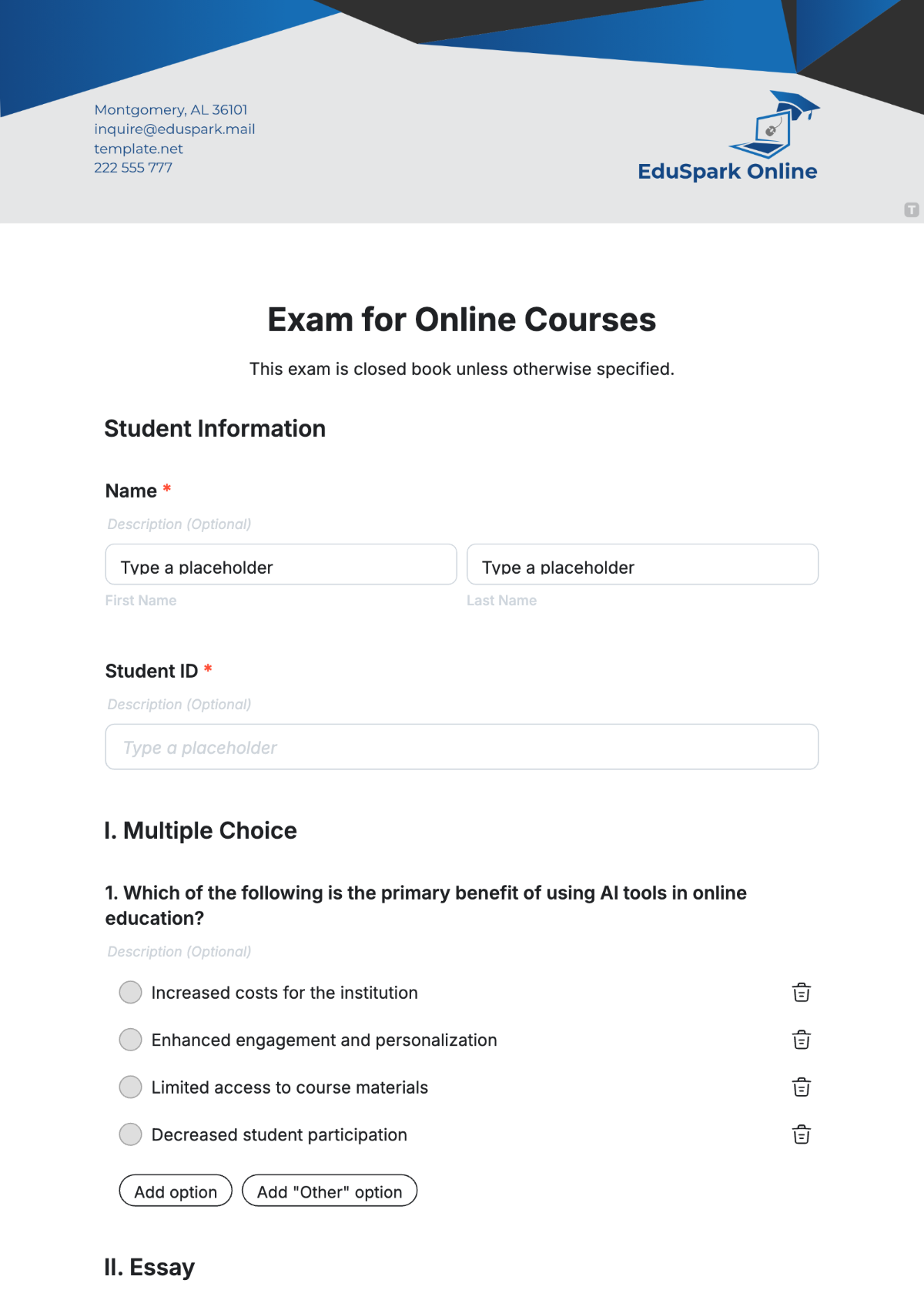Exam Preparation Study Plan
Introduction
This comprehensive study plan is meticulously designed to optimize your exam preparation, providing a clear and structured approach that enhances learning efficiency. By focusing on strategic learning, time management, and targeted study areas, this plan aims to maximize your performance, boost retention, and ensure your readiness for the upcoming exam.
Goals and Objectives
Primary Objective
The primary goal of this study plan is to provide a systematic and organized framework for mastering all essential topics, ensuring you can perform exceptionally well in the exam through focused and structured preparation.
Secondary Objectives
Target Key Topics: Identify and concentrate on high-weight topics that are crucial for the exam to allocate sufficient time and effort.
Establish a Consistent Routine: Develop a flexible yet regular study schedule that incorporates sufficient review sessions and accommodates adjustments as needed.
Efficient Study Techniques: Implement proven strategies like active recall, spaced repetition, and problem-solving to enhance retention and deep understanding of the material.
Stress Reduction: Plan regular breaks and revision intervals to minimize stress, maintain focus, and avoid burnout throughout the preparation period.
Weekly Study Schedule
Week | Topics | Study Hours | Notes/Tasks |
|---|---|---|---|
Week 1 | Introduction to Core Topics | 10 | Review lecture notes and summarize key concepts. |
Week 2 | Advanced Topics Exploration | 12 | Work on practice problems and case studies to deepen understanding. |
Week 3 | Midpoint Review and Self-Assessment | 8 | Take practice tests, evaluate progress, and identify areas for improvement. |
Week 4 | Focused Revision and Exam Strategy | 15 | Identify weak areas, consult additional resources, and refine your exam strategy. |
Daily Study Routine
Morning:
Review notes from the previous day to reinforce what you’ve learned.
Set clear daily objectives based on the weekly plan to stay focused.
Dedicate an hour of focused study on one key topic to ensure mastery.
Afternoon:
Engage in another one-hour study session focused on a different topic.
Take practice quizzes or timed assessments to simulate exam conditions and gauge your knowledge.
Refer to supplementary materials or advanced resources for challenging topics.
Evening:
Reflect on the day’s learning, making concise summary notes to reinforce your understanding.
Conduct a light revision of all covered topics to strengthen memory retention.
Plan and set clear objectives for the next day to maintain a structured approach.
Study Techniques and Tools
Active Recall:
Actively engage with the material by testing your memory without relying on notes. This process strengthens your understanding and retention.
Spaced Repetition:
Utilize spaced repetition by revisiting topics at strategically increasing intervals to solidify long-term retention and combat forgetting.
Mind Maps:
Create mind maps to visually organize and connect key concepts, making it easier to understand complex topics and their interrelations.
Study Groups:
Join or form study groups to discuss difficult topics, exchange ideas, and collaborate on solving problems. This can foster deeper understanding and expose you to different perspectives.
Conclusion
By adhering to this carefully crafted study plan, you can systematically prepare for your exam, ensuring thorough coverage of all necessary topics. Consistency, dedication, and flexibility are keys to success—feel free to adjust the plan to fit your personal pace and learning style. With focus and perseverance, you’ll be well-equipped to excel in your exam.
